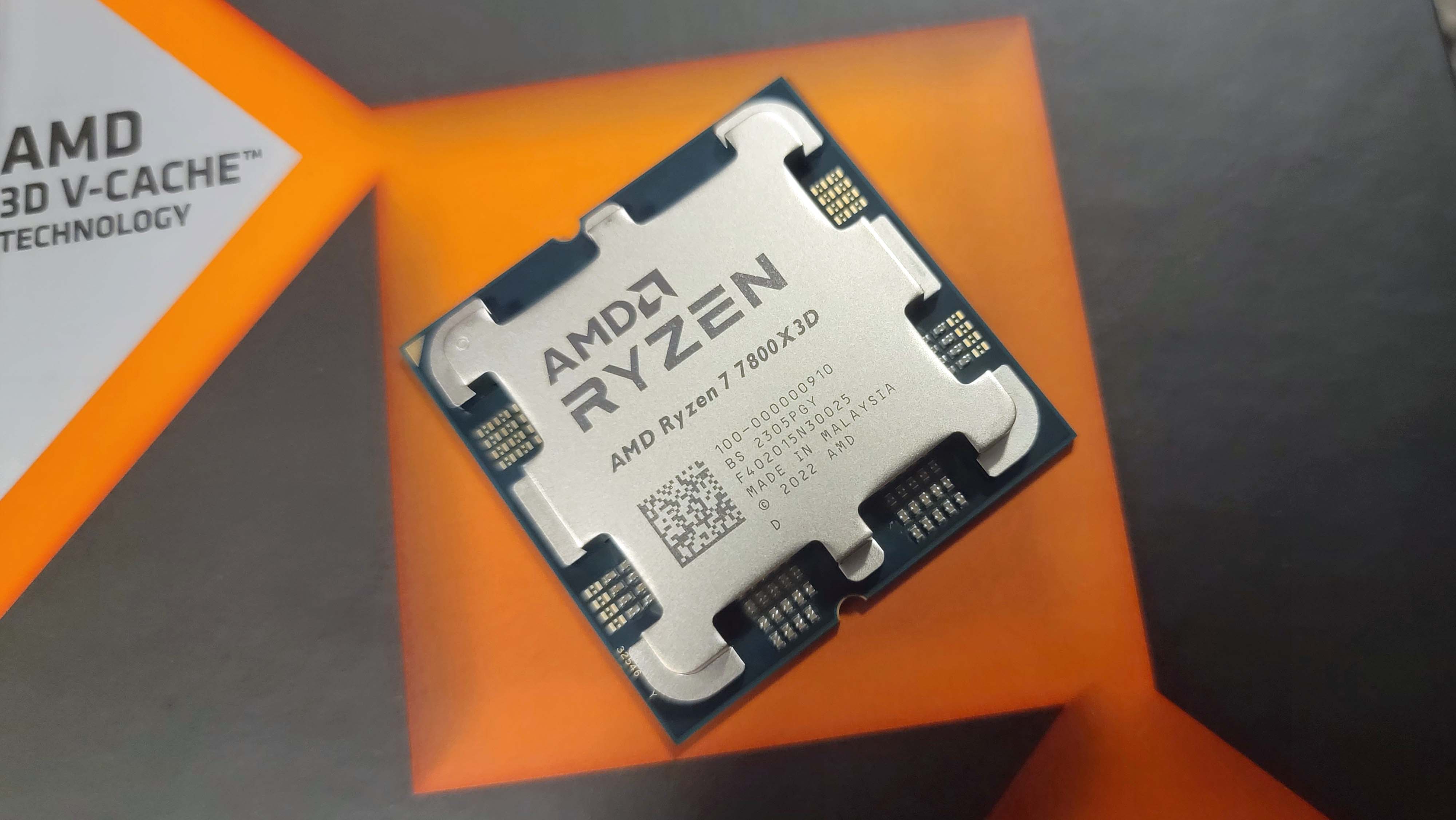Why you can trust Tom's Hardware
AMD Ryzen 7 7800X3D Productivity Benchmarks — The TLDR:
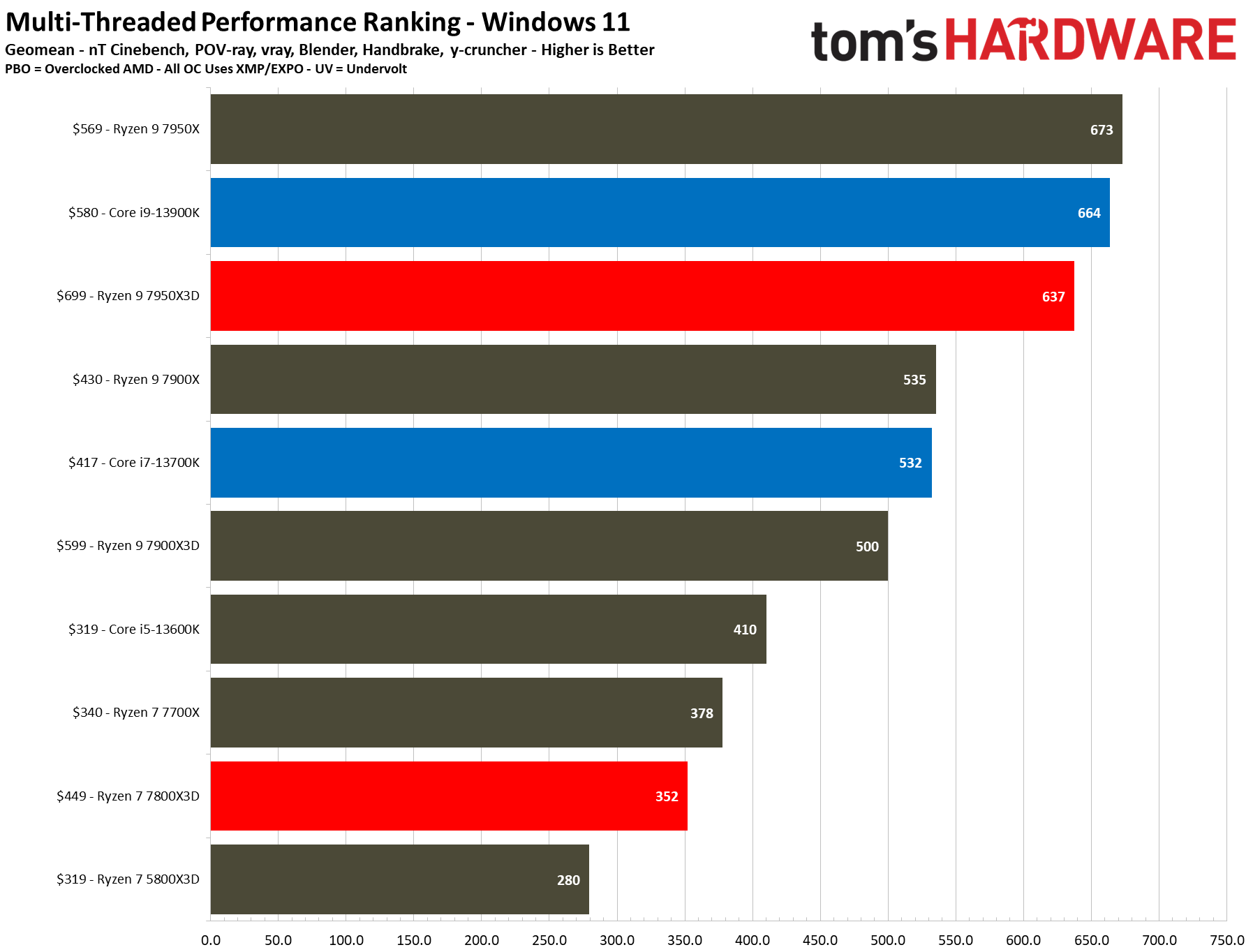
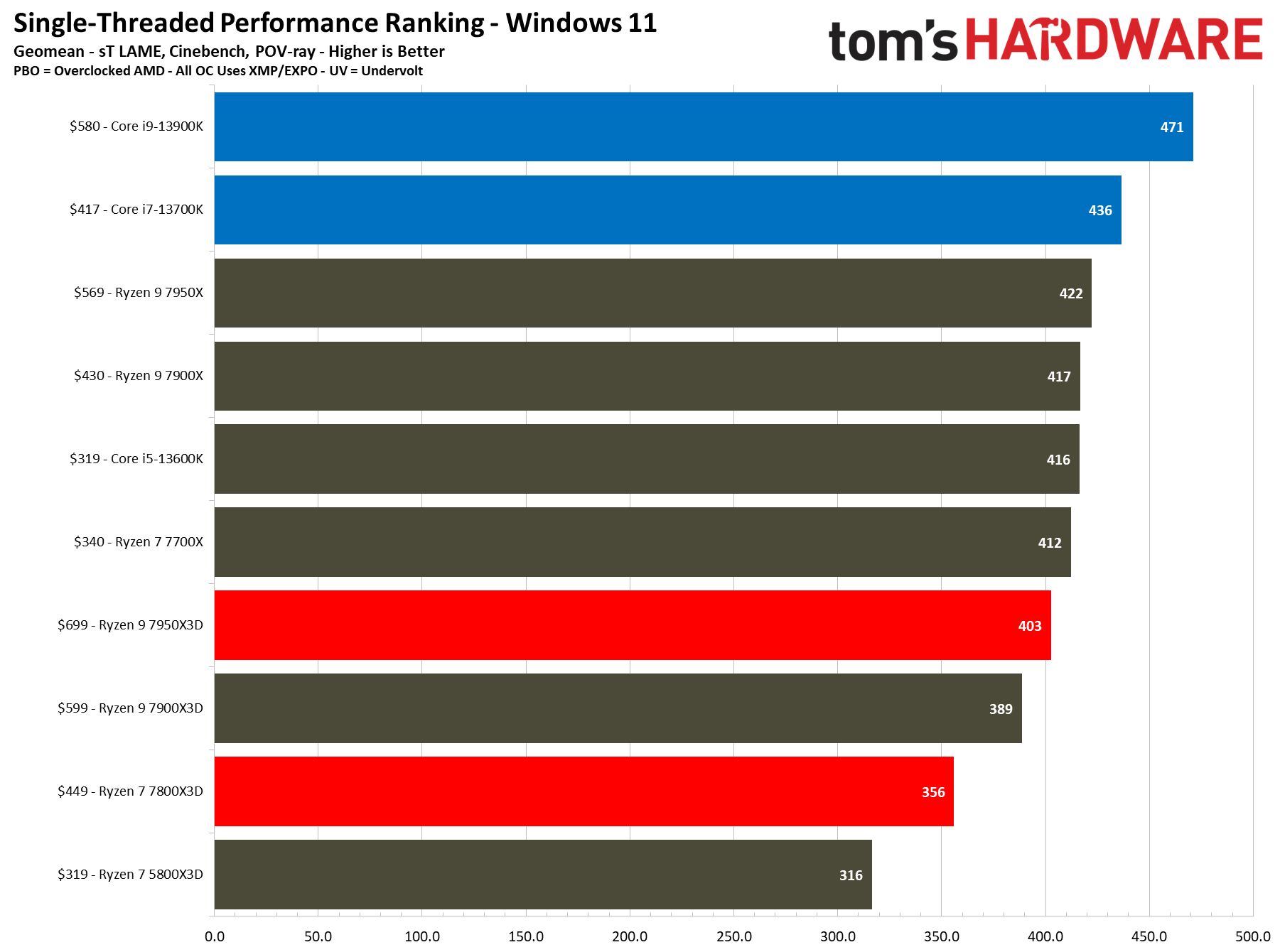
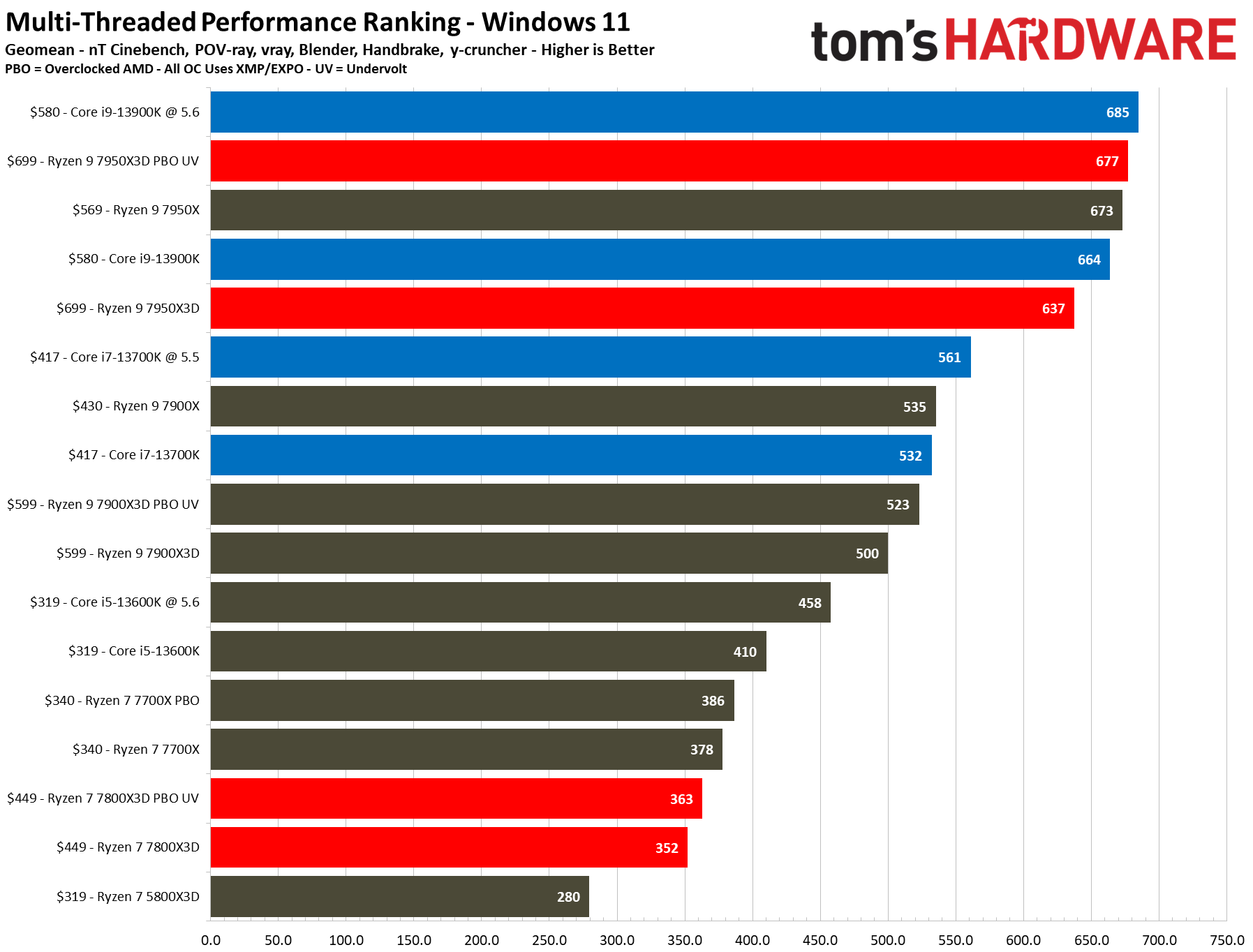
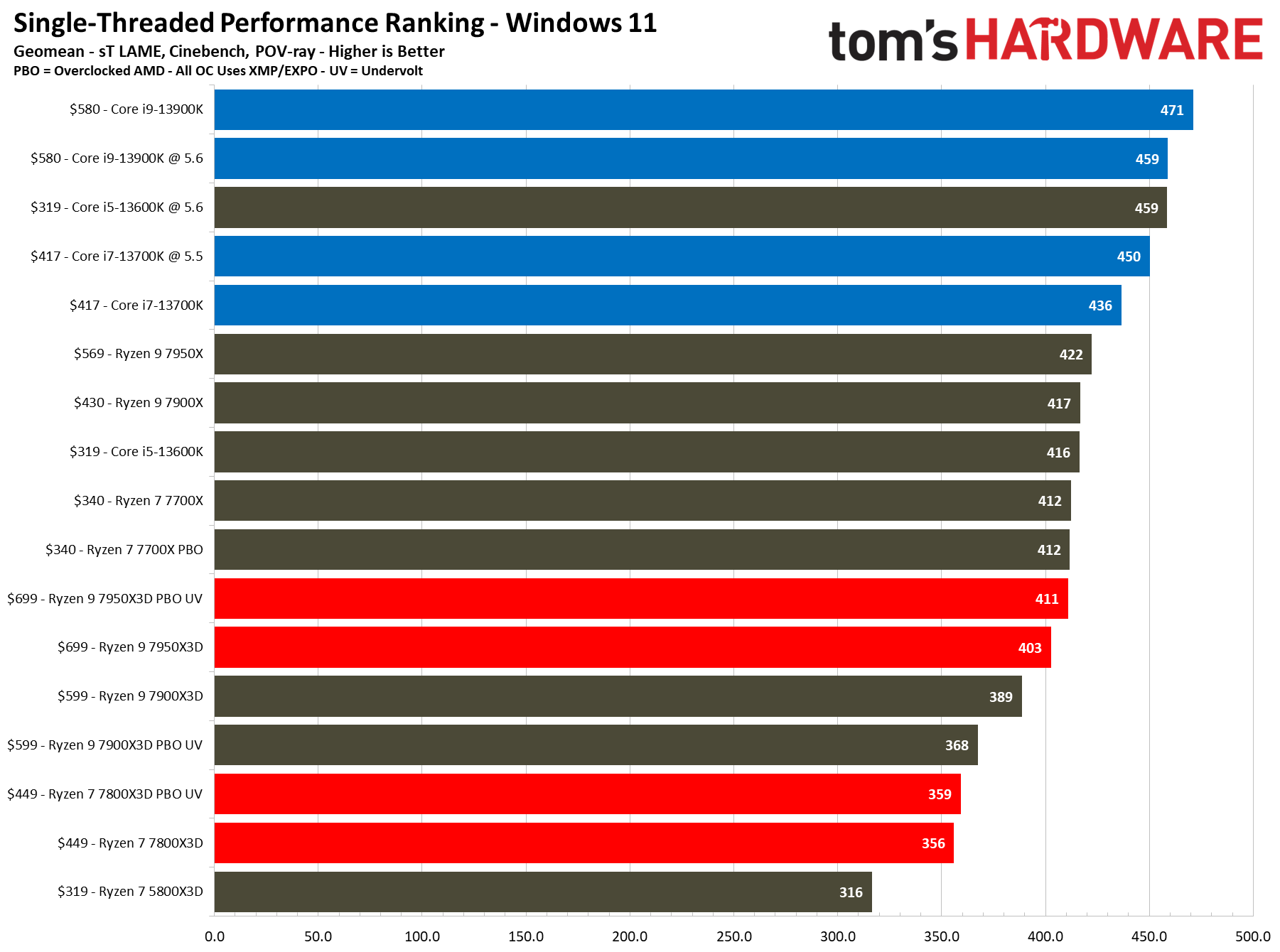
The first slides are simplified without the overclocking configs, while the remainder contains the full roster of tested configurations. We boil productivity application performance down into two broad categories: single- and multi-threaded. These slides show the geometric mean of performance in several of our most important tests in each category, but be sure to look at the individual benchmark results below.
The 3D V-Cache tech delivers explosive performance gains in gaming but also results in lower performance in productivity applications due to power and thermal constraints.
The Ryzen 7 7800X3D is amazing at gaming, but it struggles elsewhere. For instance, the Ryzen 7 7800X3D is most directly comparable to AMD's similar 7700X, but the latter has a 400 MHz higher boost clock than the 7800X3D's 5.0 GHz. As a result, the Ryzen 7 7700X is 7% faster than the 7800X3D in our cumulative measure of threaded applications and 15% faster in single-threaded work.
Of course, the 16-core Ryzen 9 7950X3D easily outmuscles the 7800X3D in productivity work, with 81% faster performance in threaded work and 13% faster performance in single-threaded applications.
The Core i9-13900K also beats the 7800X3D easily: it's 32% faster in single-threaded work and 89% faster in threaded applications, but that isn't too surprising given the $150 chasm between the two chips. The 7800X3D doesn't fare much better against the like-priced $417 Core i7-13700K in productivity apps, either — the 13700K is 22% faster in single-threaded and 51% faster in multi-threaded.
We see some slight gains in threaded work from overclocking the Ryen 7 7800X3D, but the 3% gain won't flip the tables on the other contenders. However, at least the 7800X3D shows a solid generational uplift, with a 26% gain in multi-threaded and a 12% gain in single-threaded performance compared to the Ryzen 7 5800X3D.
Overall, the Ryen 7 7800X3D is exactly what AMD says it is — a highly specialized chip for gaming that won't offer as much performance in standard workloads as the regular Ryzen 7000 processors. Given that the Ryzen 7 7800X3D is aimed almost entirely at the gaming market, we'll limit our commentary on the individual results below.
Tom's Hardware | Multi-Thread | Single-Thread |
$569 — Ryzen 9 7950X | 100% | 89.7% |
$589 — Core i9-13900K | 98.6% | 100% |
$699 — Ryzen 9 7950X3D | 94.7% | 85.5% |
$430 - Ryzen 9 7900X | 79.5% | 88.5% |
$409 — Core i7-13700K | 79.1% | 92.7% |
$599 — Ryzen 9 7900X3D | 74.2% | 82.5% |
$449 — Ryzen 7 7800X3D | 52.3% | 75.6% |
$358 — Ryzen 7 5800X3D | 41.5% | 67.2% |
Rendering Benchmarks on AMD Ryzen 7 7800X3D
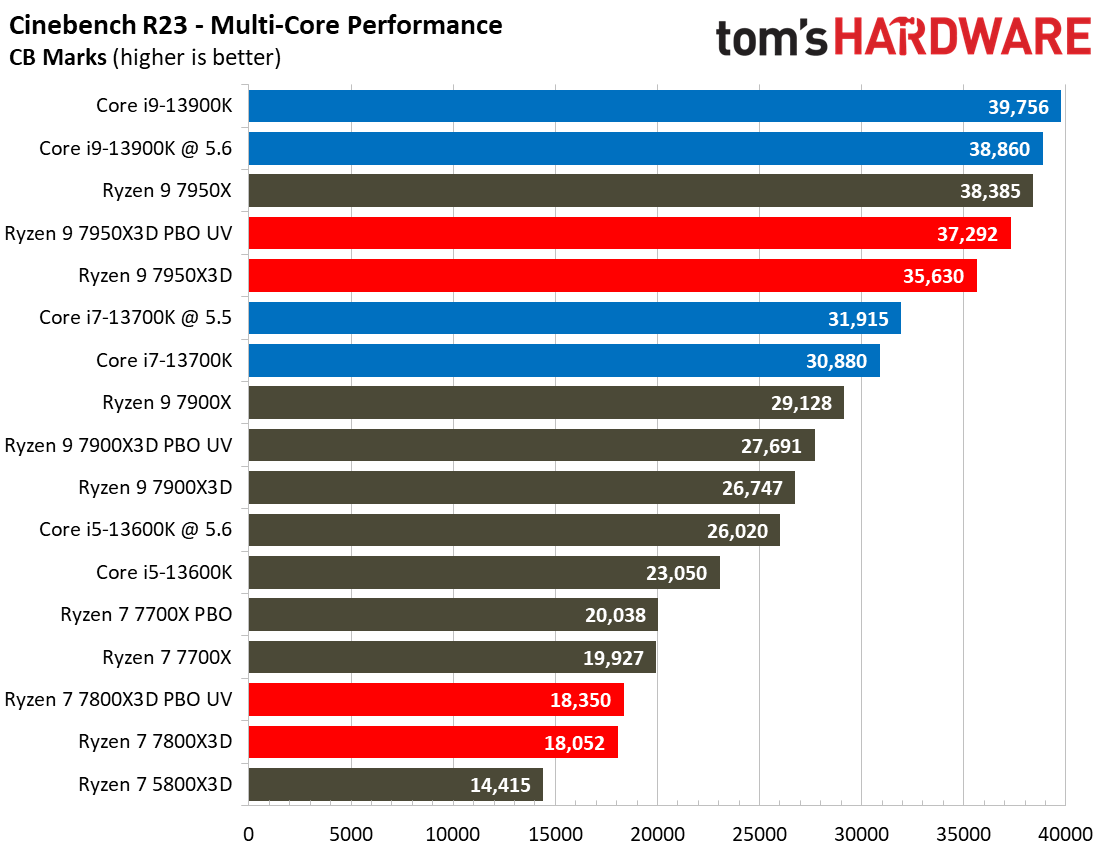
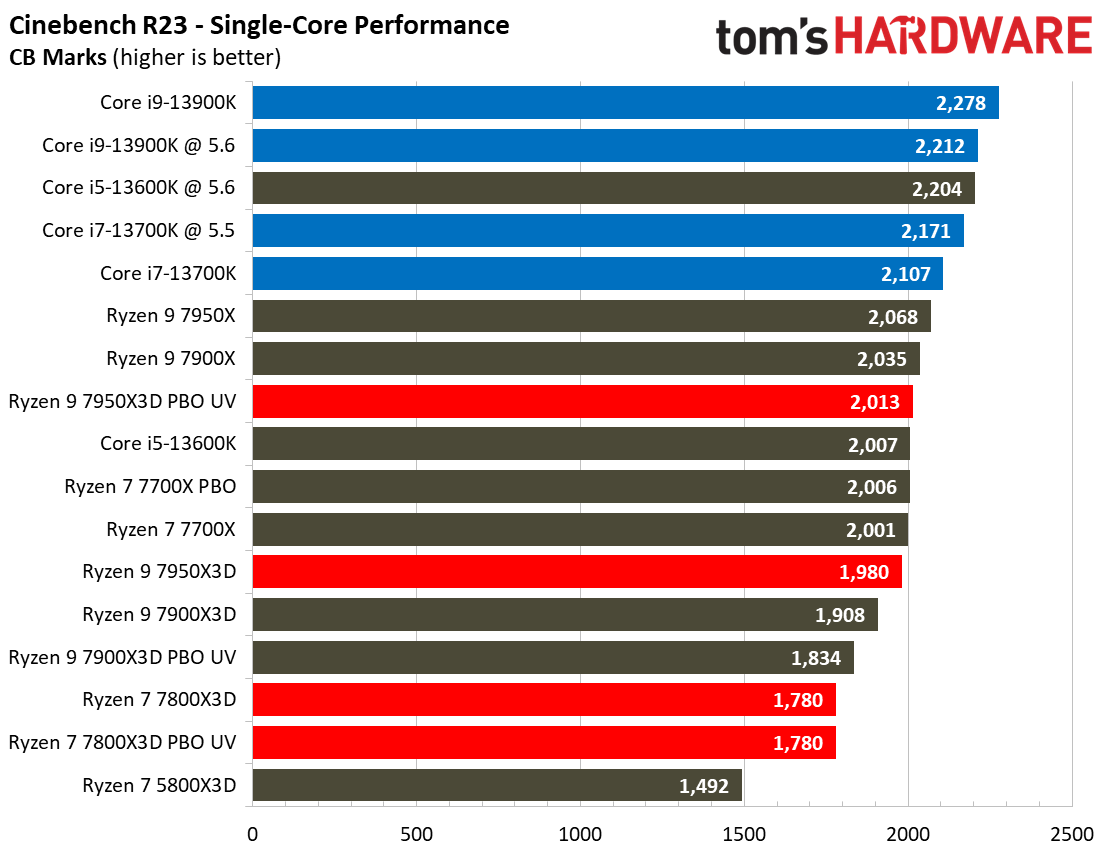
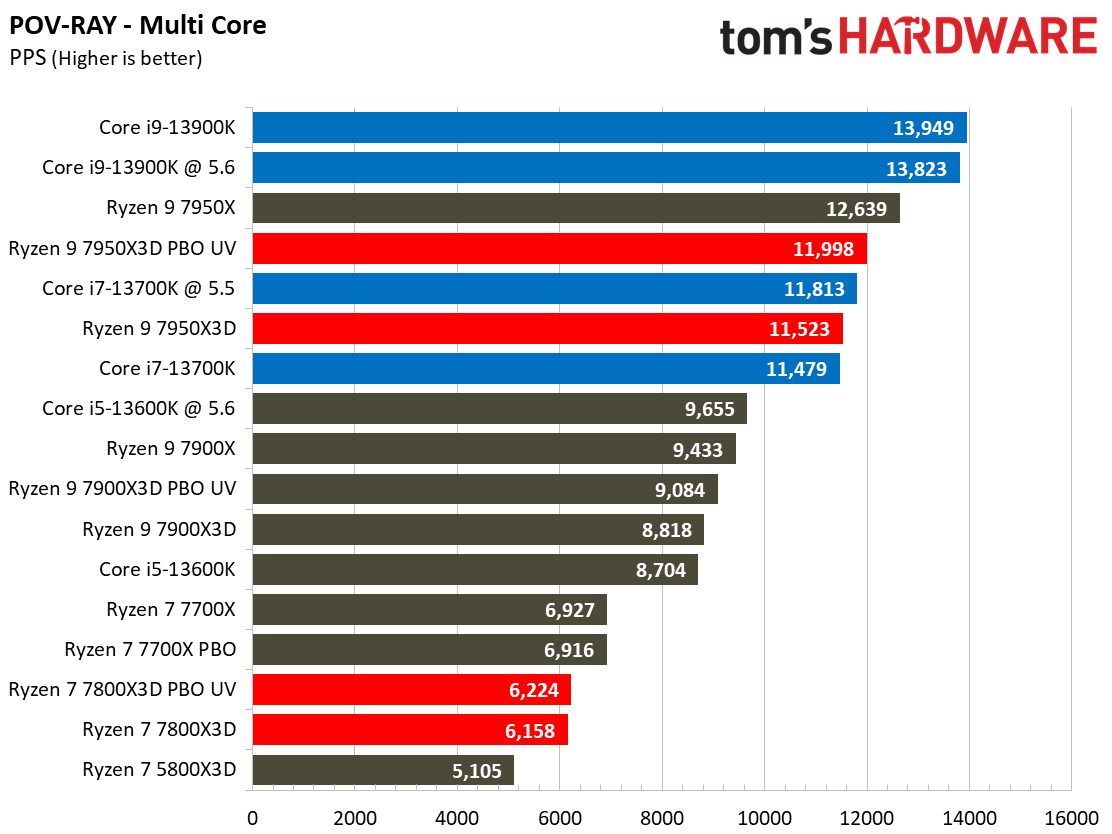
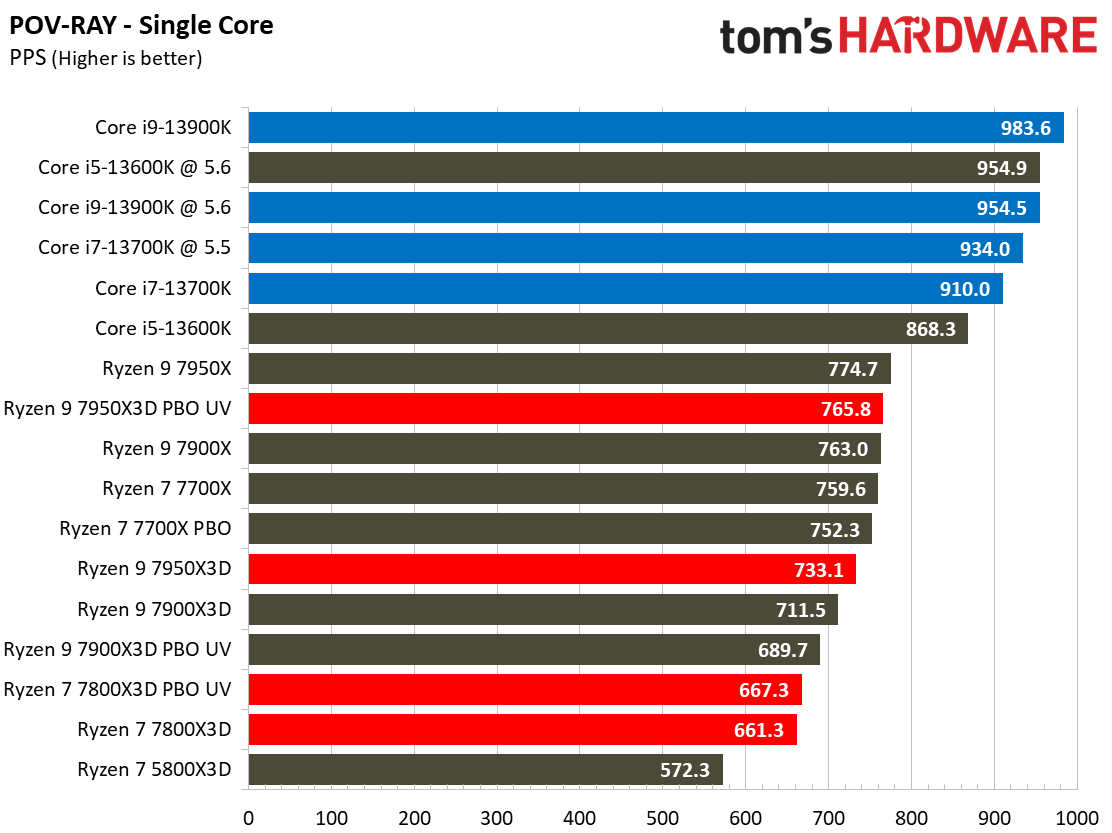
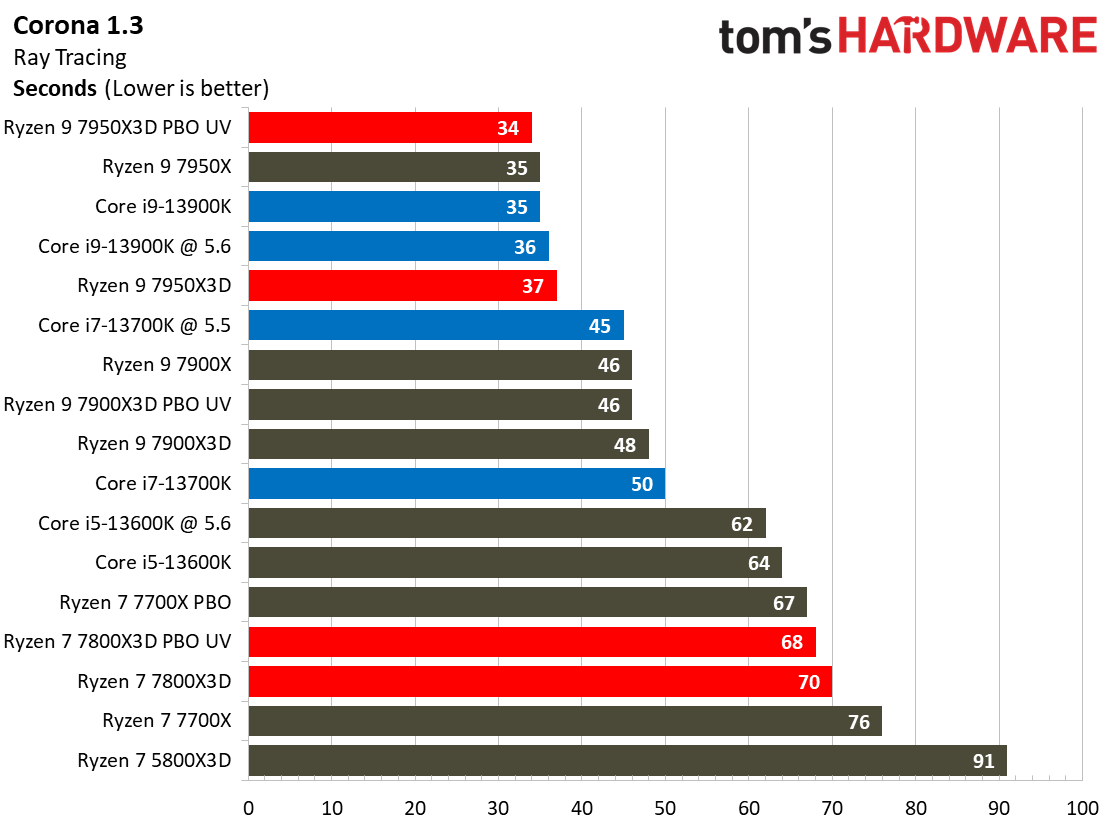
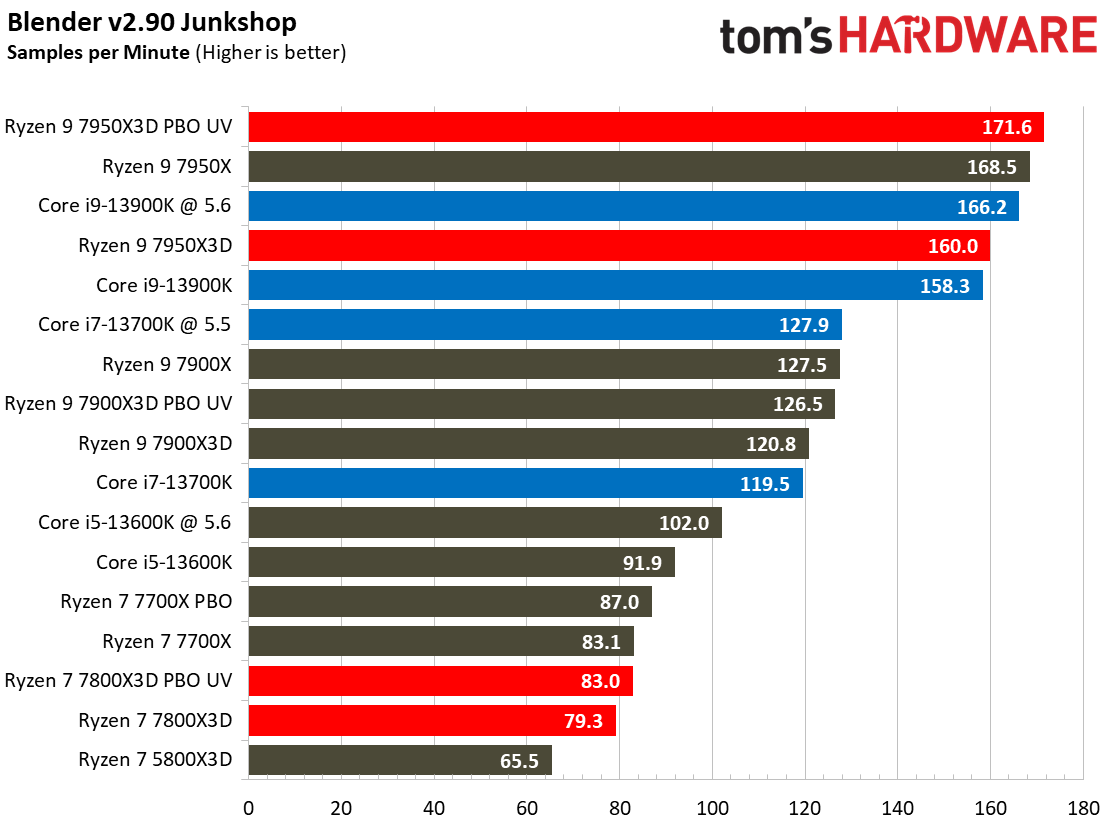
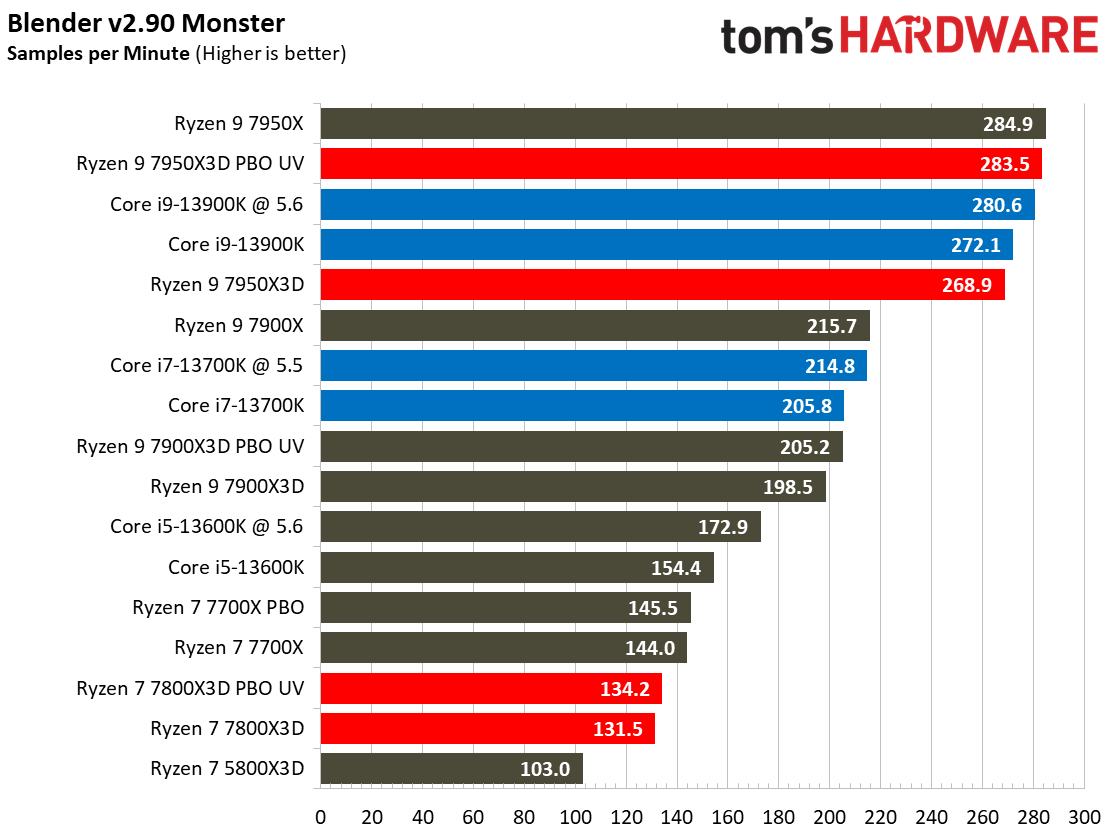
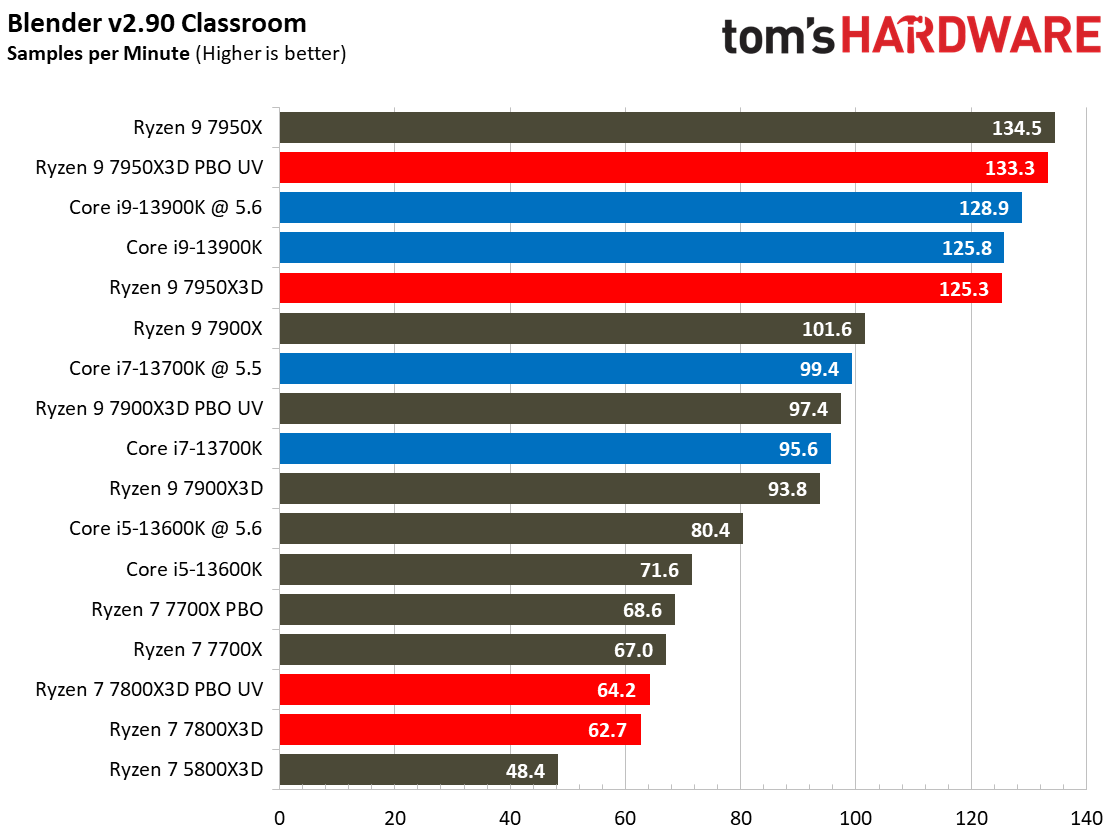
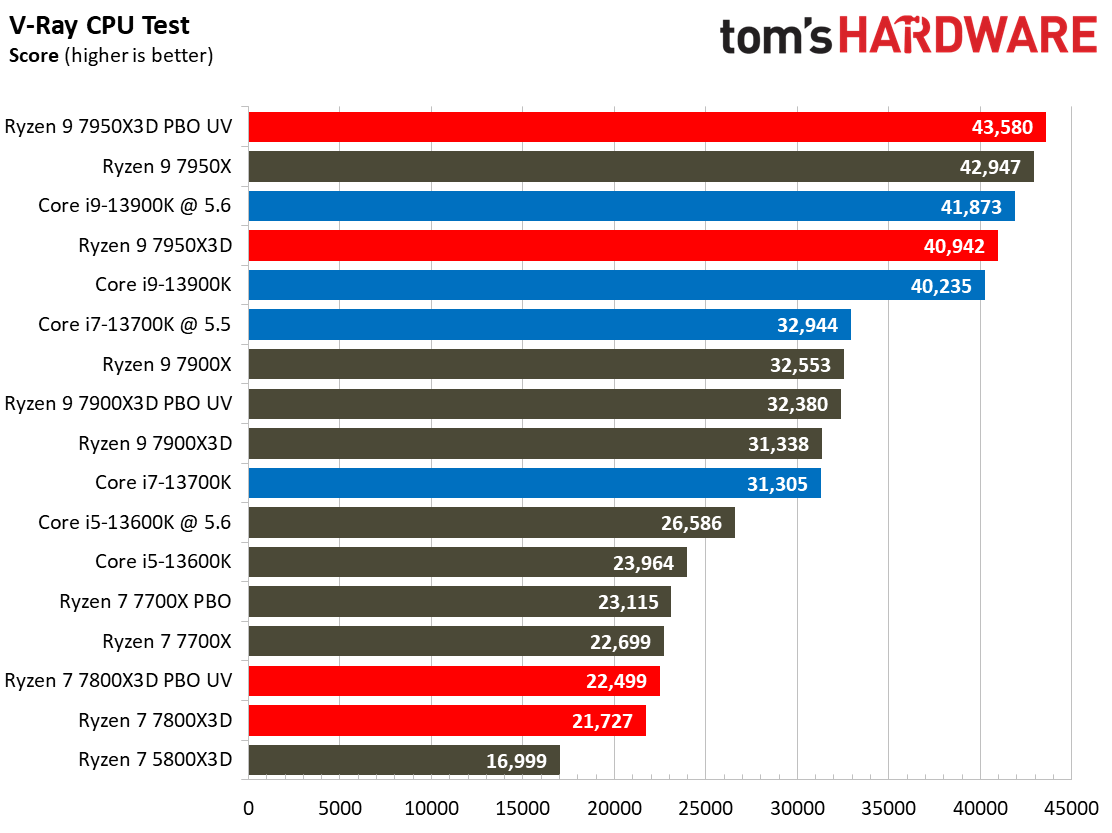
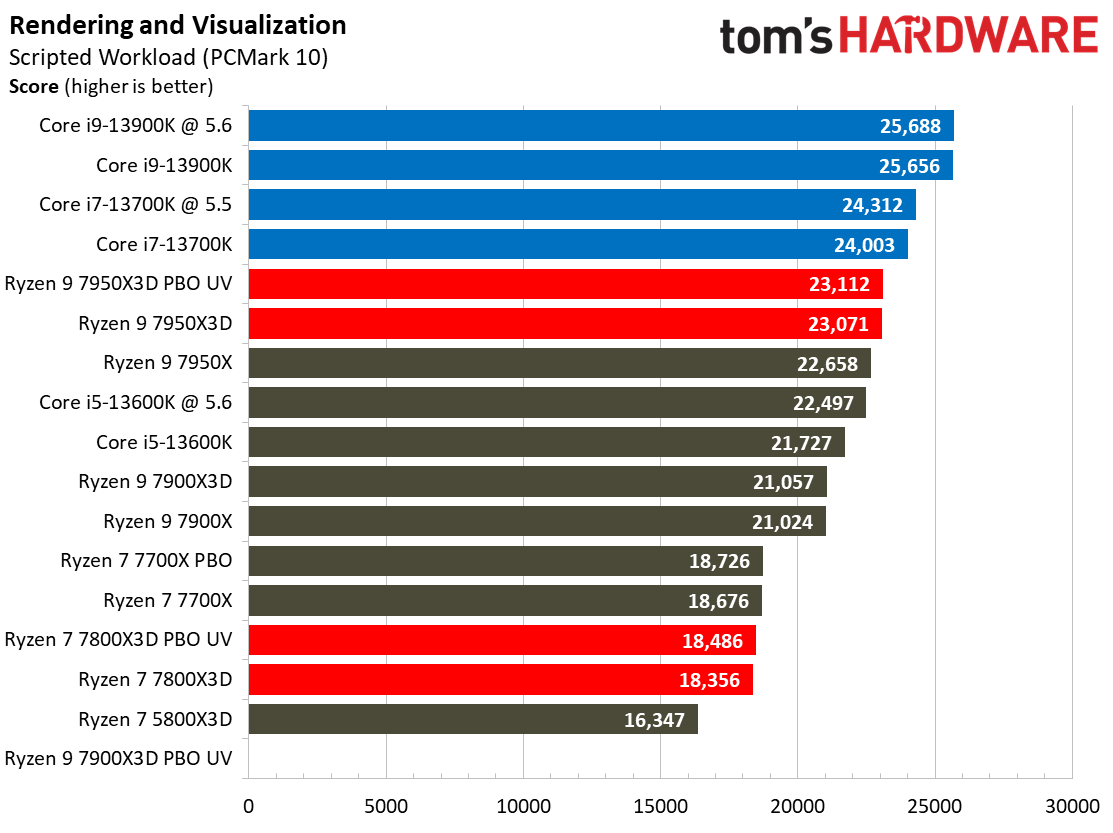
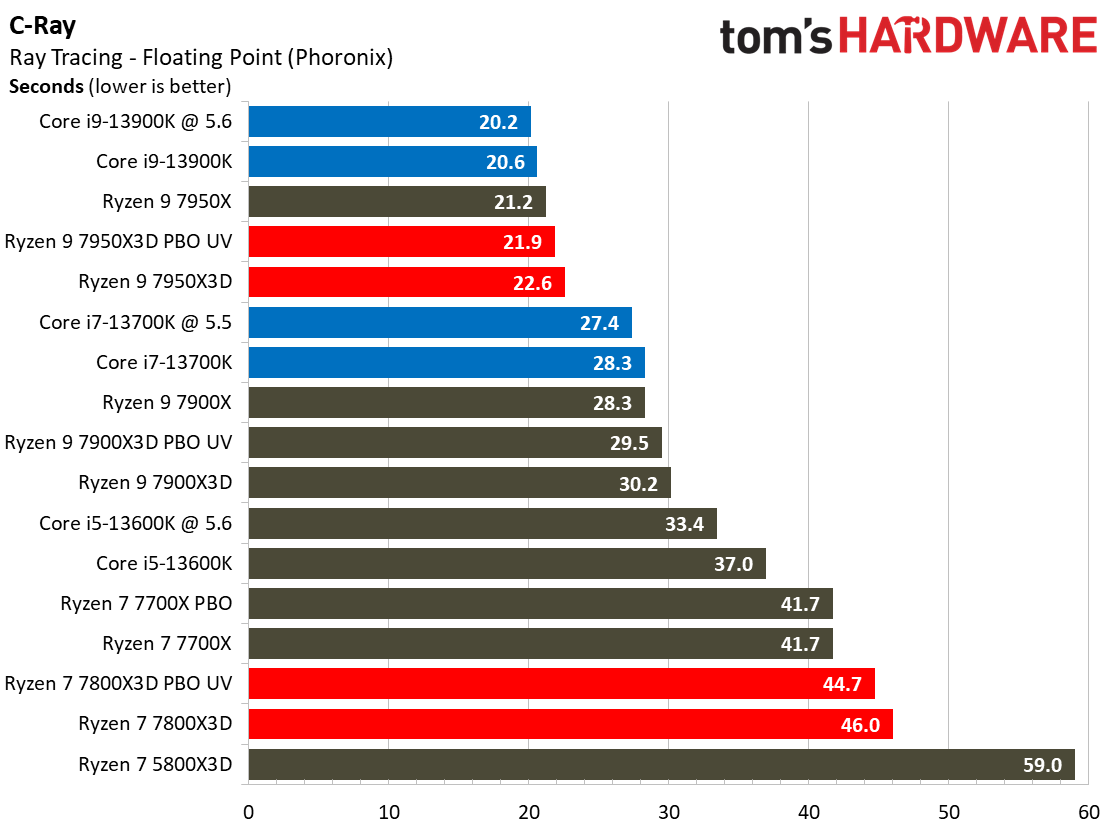
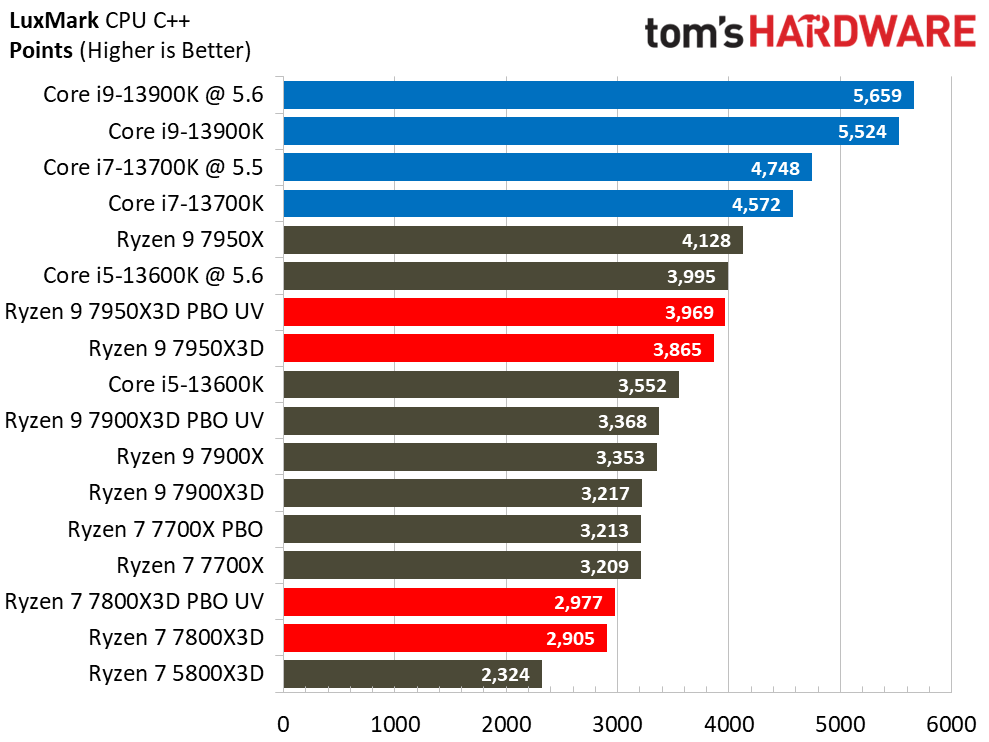
The Ryzen 7 7800X3D is significantly slower in heavily-threaded workloads than the Core i7-13700K, an unavoidable byproduct of its lower power and thermal thresholds. That same trend repeats throughout the heavy workloads.
Encoding Benchmarks on AMD Ryzen 7 7800X3D
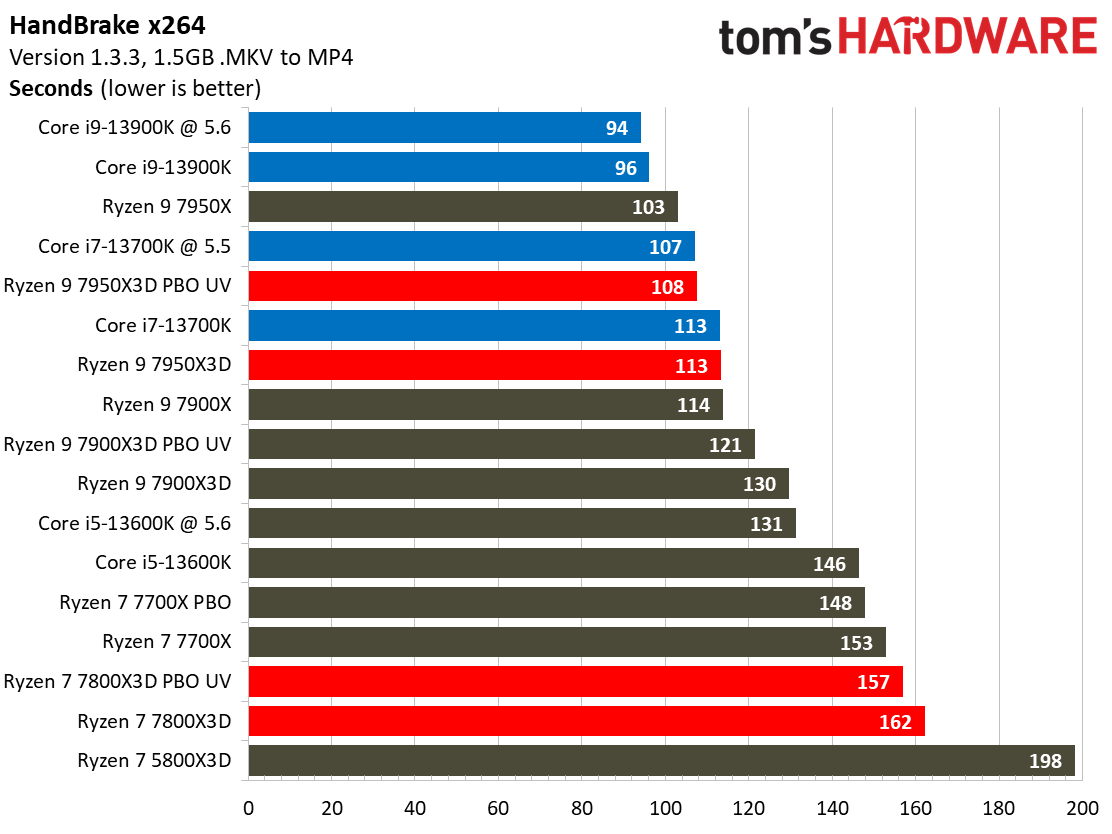
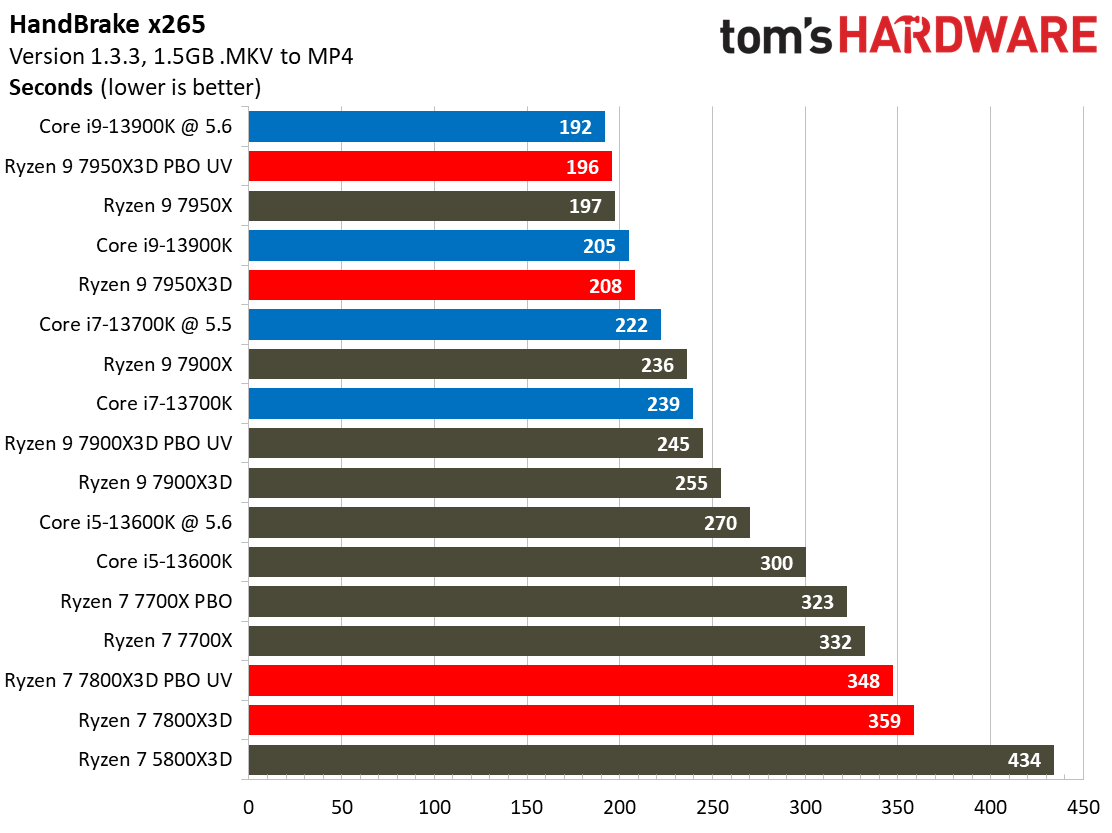
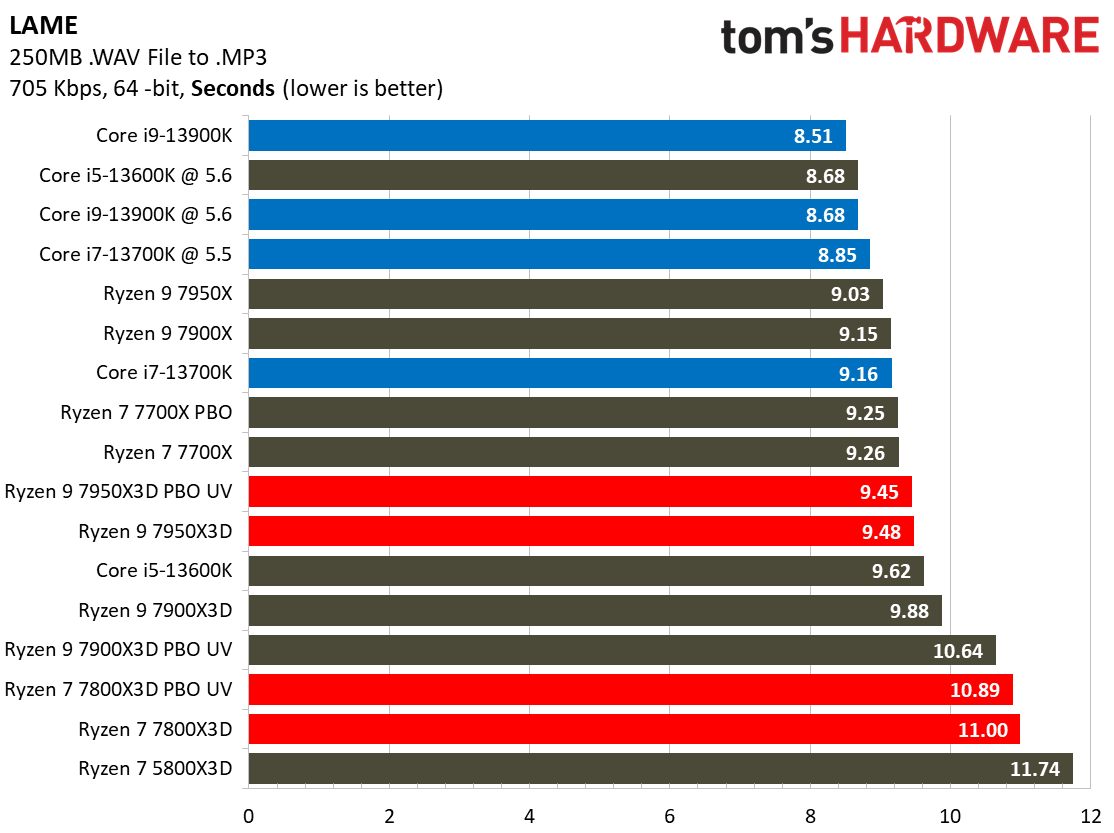
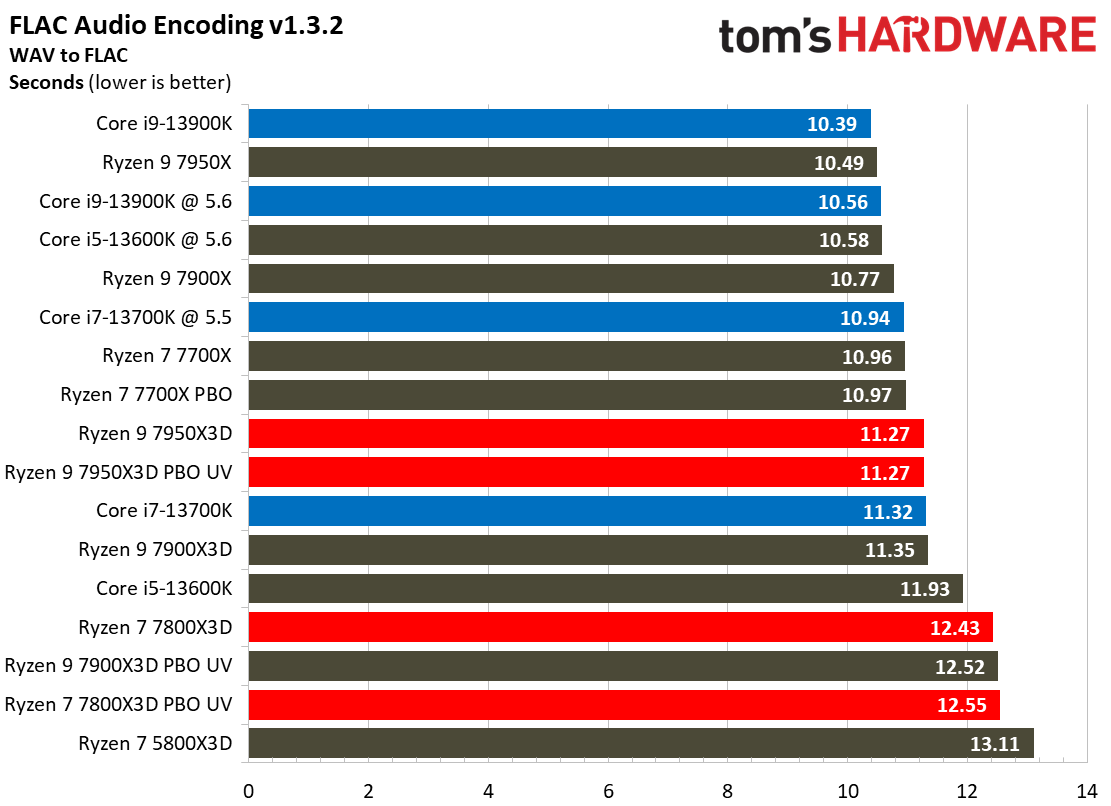

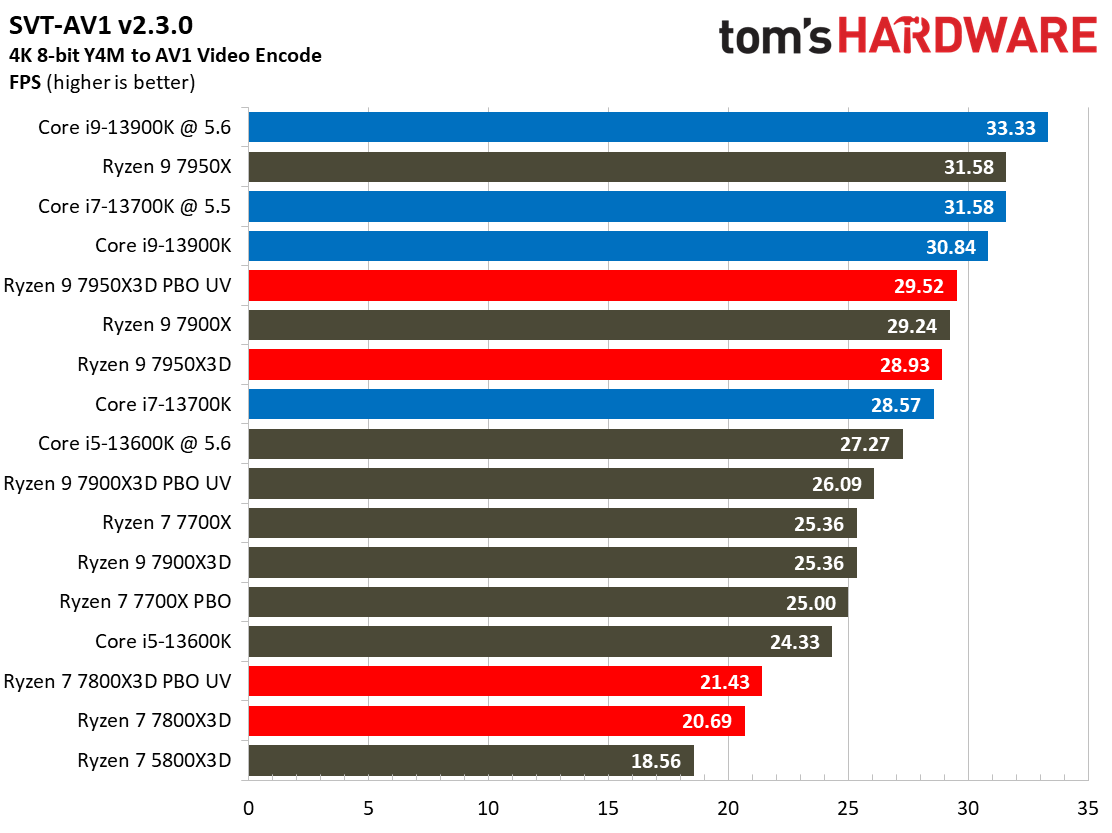
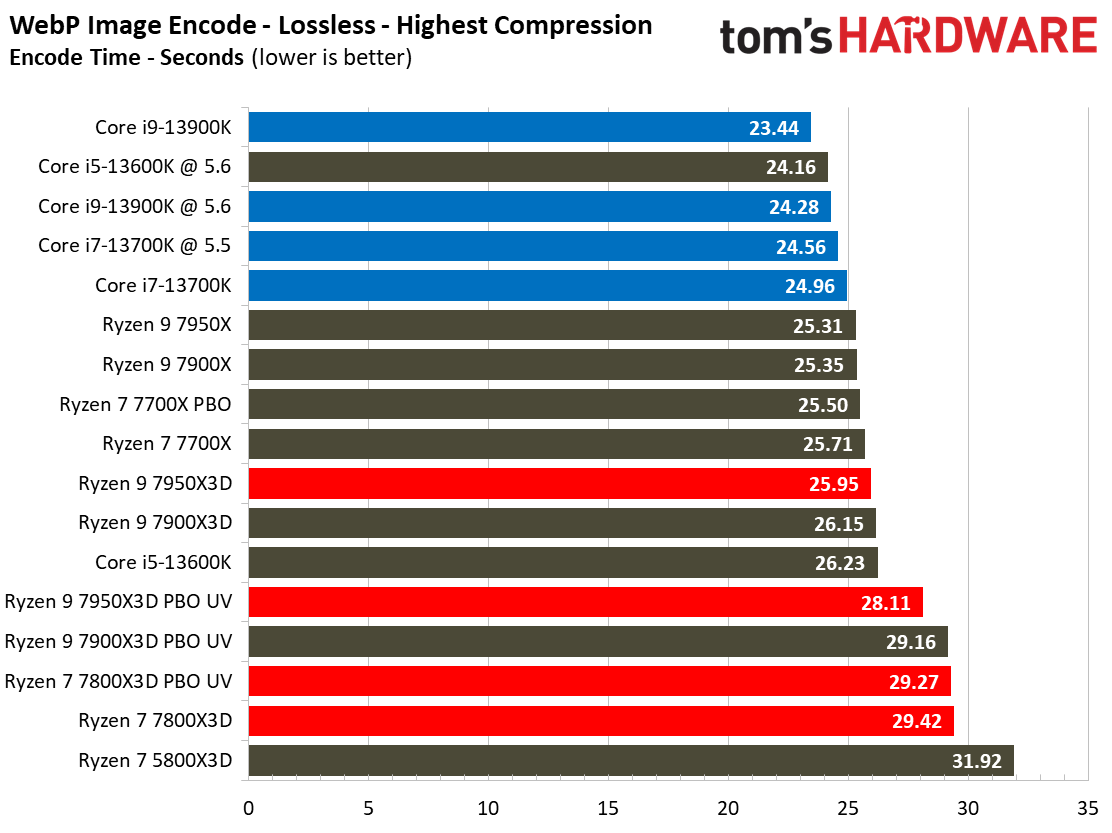
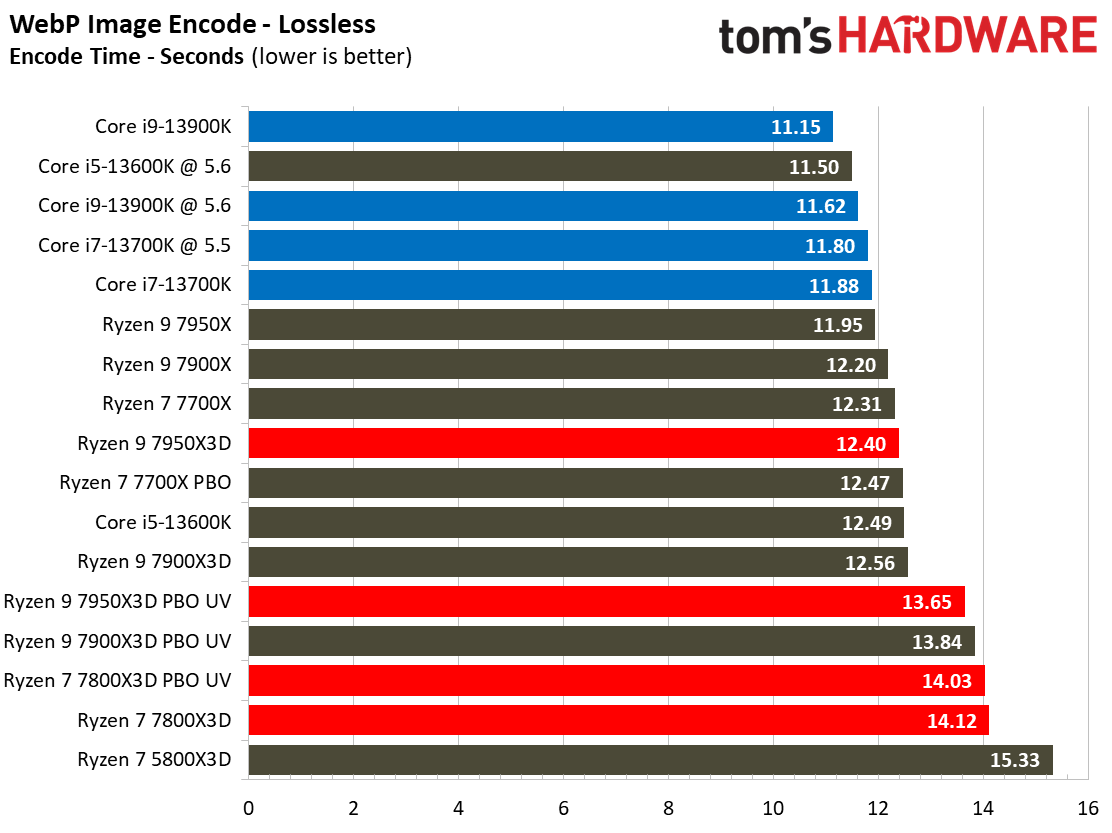
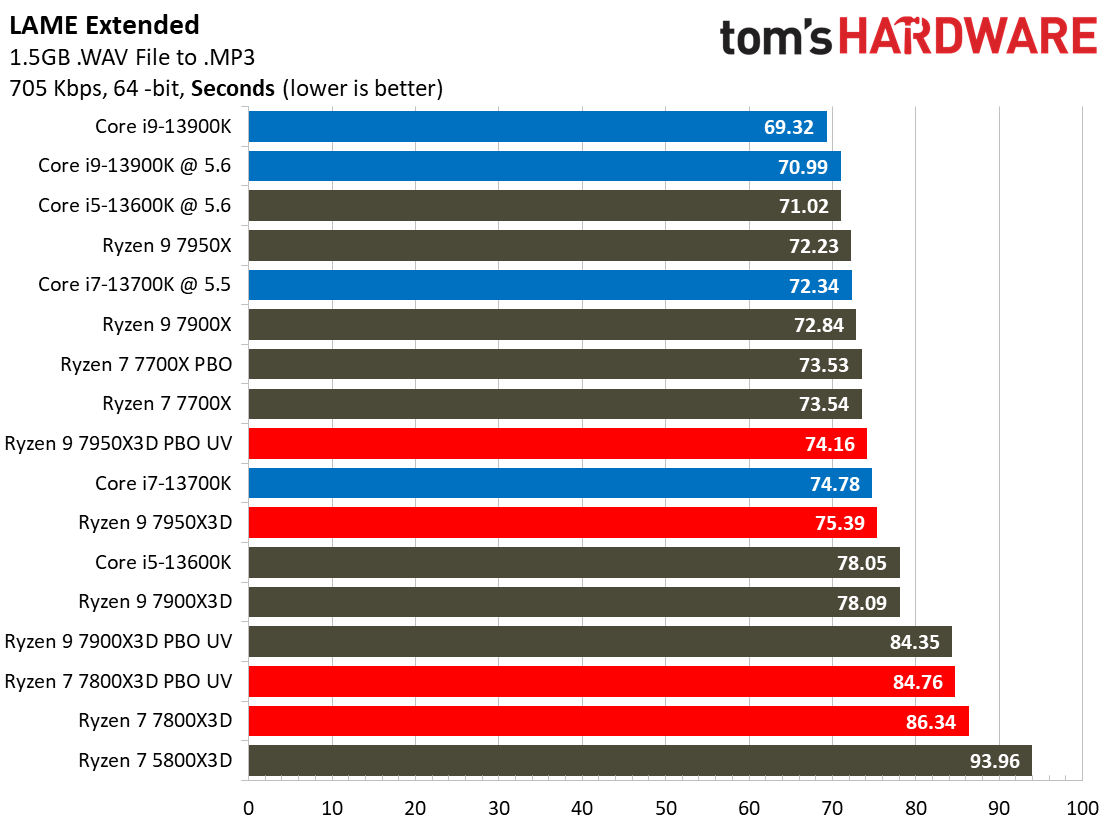
Most encoders tend to be either heavily threaded or almost exclusively single-threaded — it takes an agile chip to master both disciplines. Handbrake, SVT-HEVC, and SVT-AV1 serve as our threaded encoders, while LAME, FLAC, and WebP are indicative of how the chips handle lightly-threaded engines.
The Ryzen 7 7800X3D trails in both the lightly-threaded and heavily-threaded applications, only consistently beating the Ryzen 7 5800X3D.
Adobe, Web Browsing, Office, and Productivity on AMD Ryzen 7 7800X3D
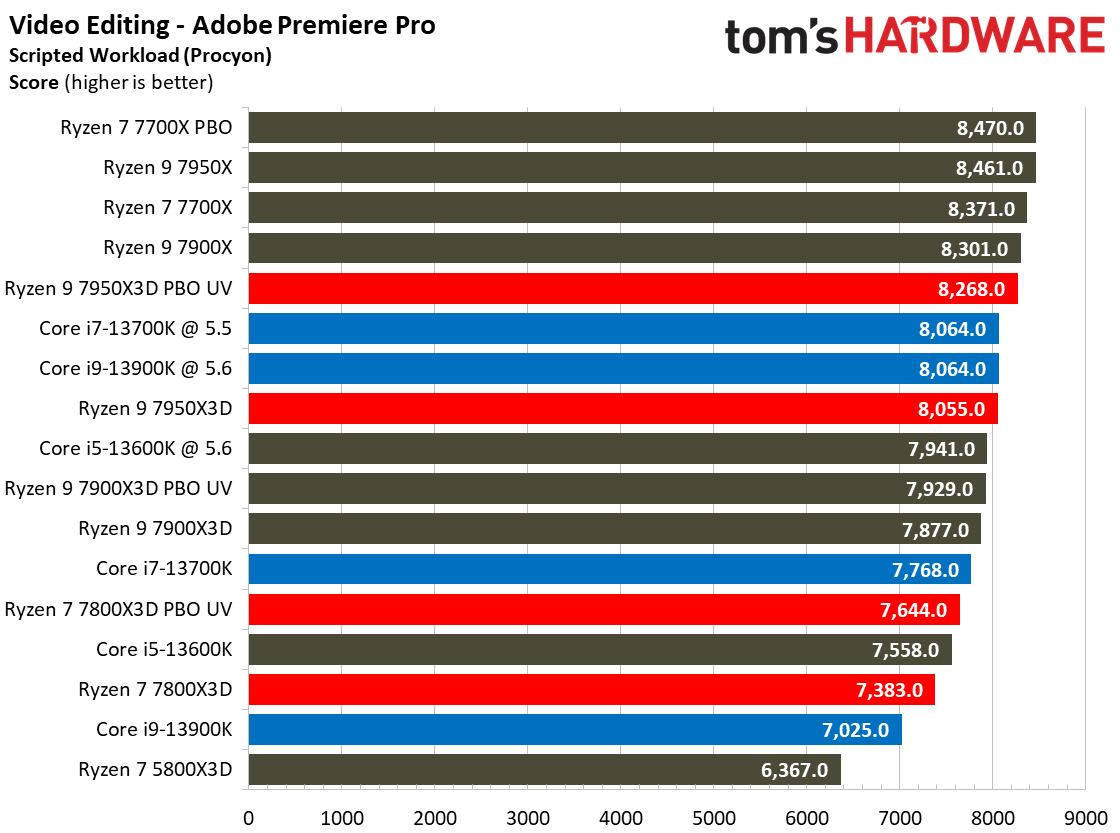
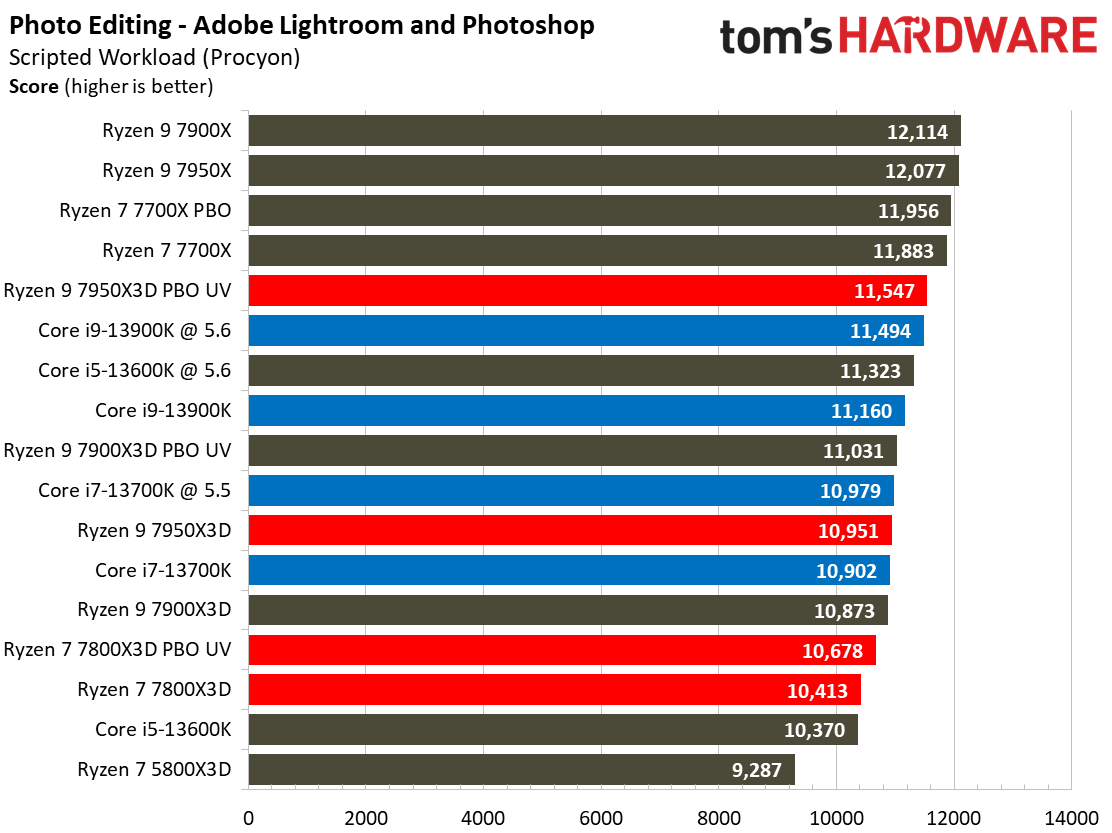
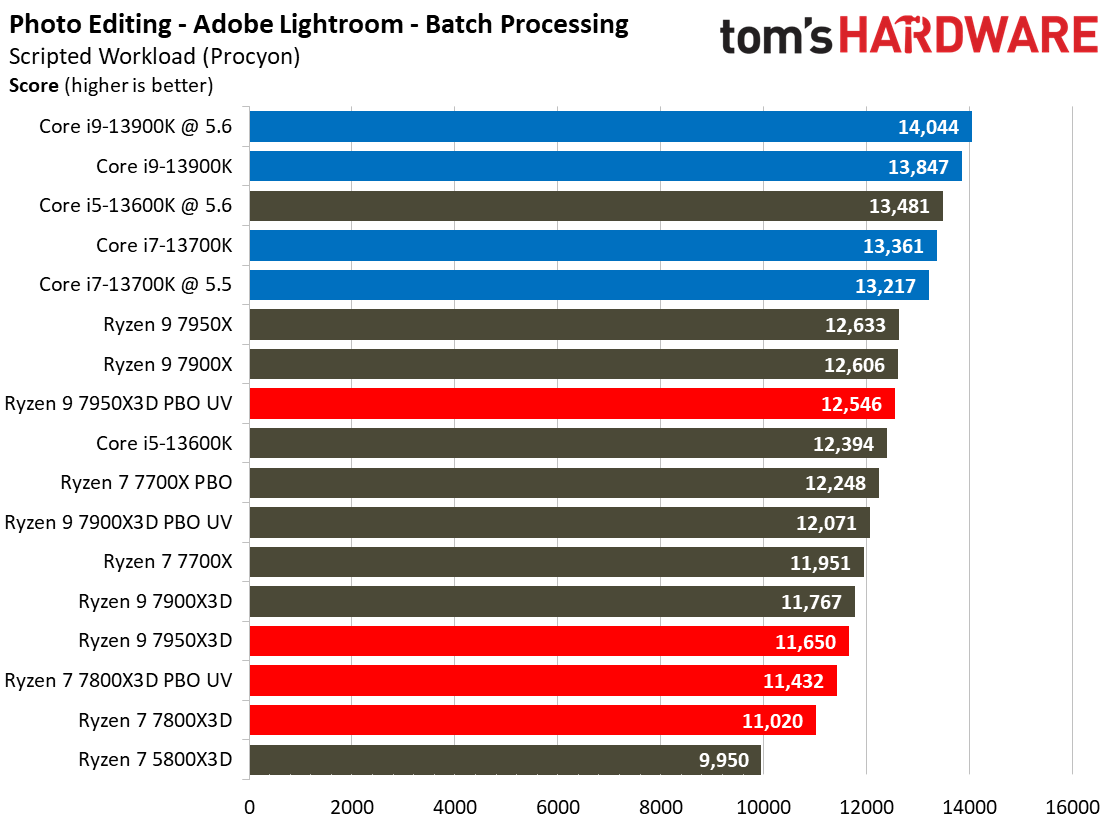
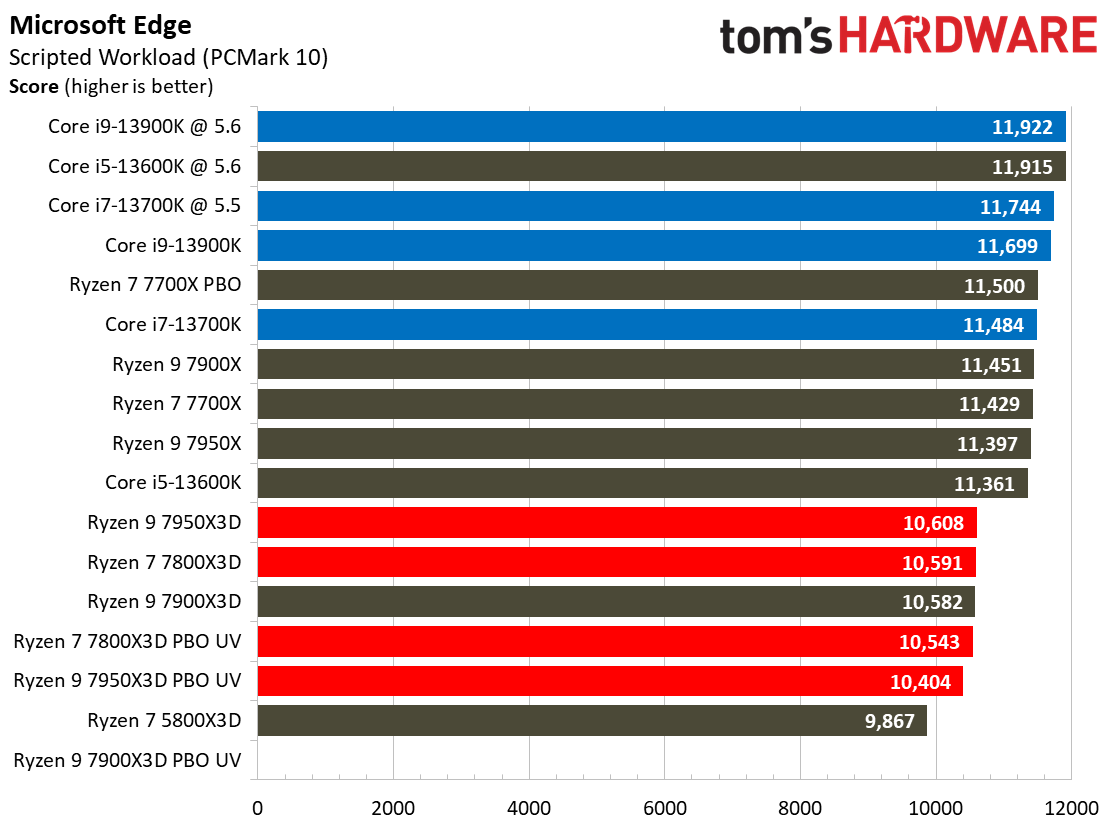
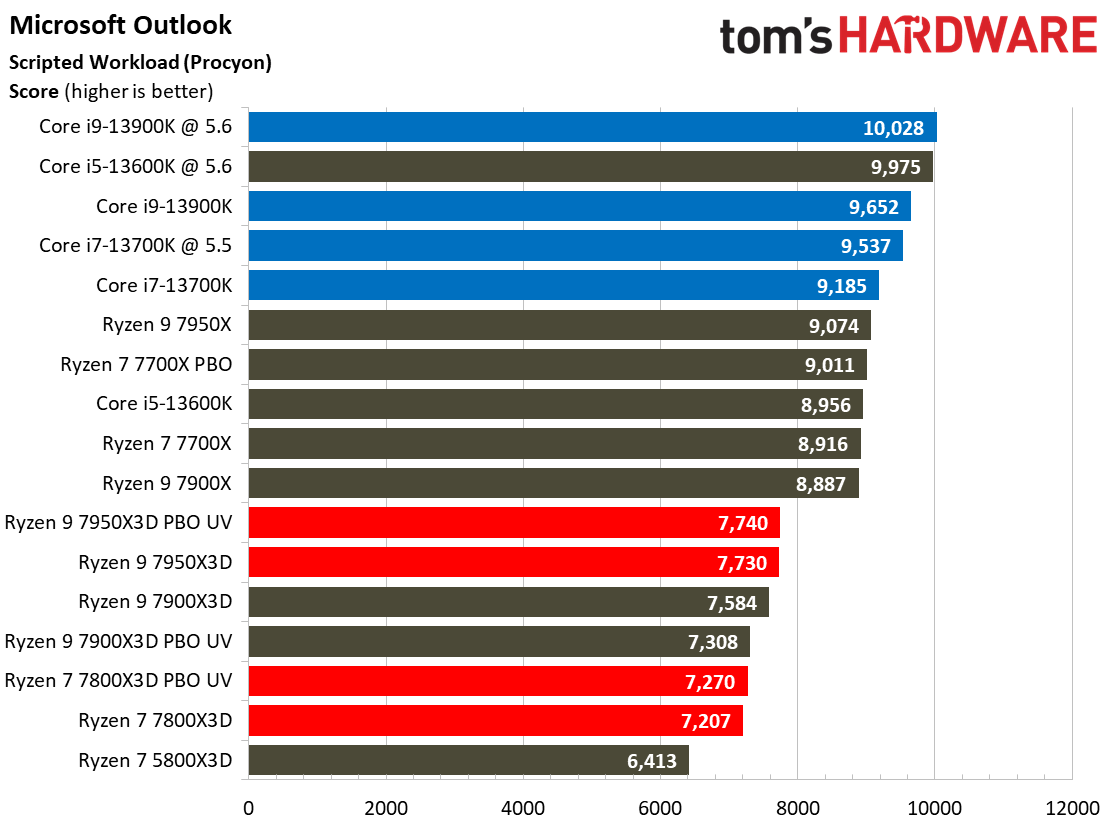
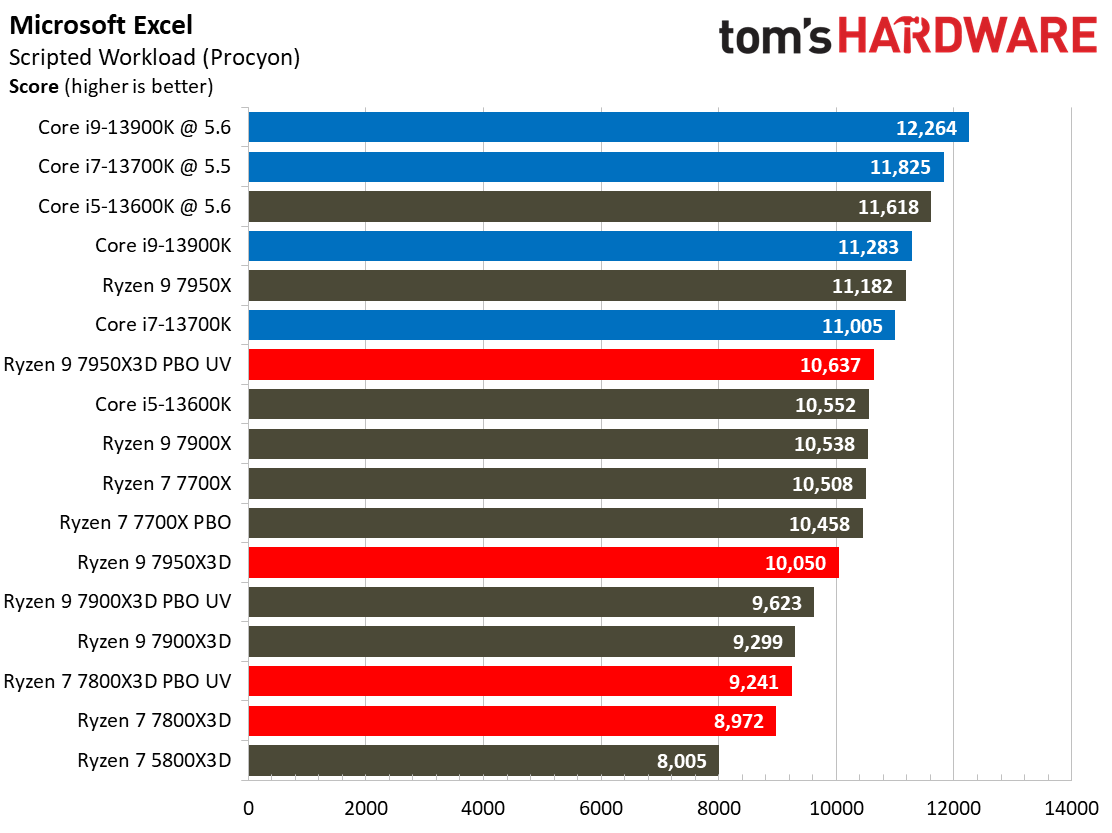
Compilation, Compression, AI Chess Engines, AVX-512 Performance on AMD Ryzen 7 7800X3D
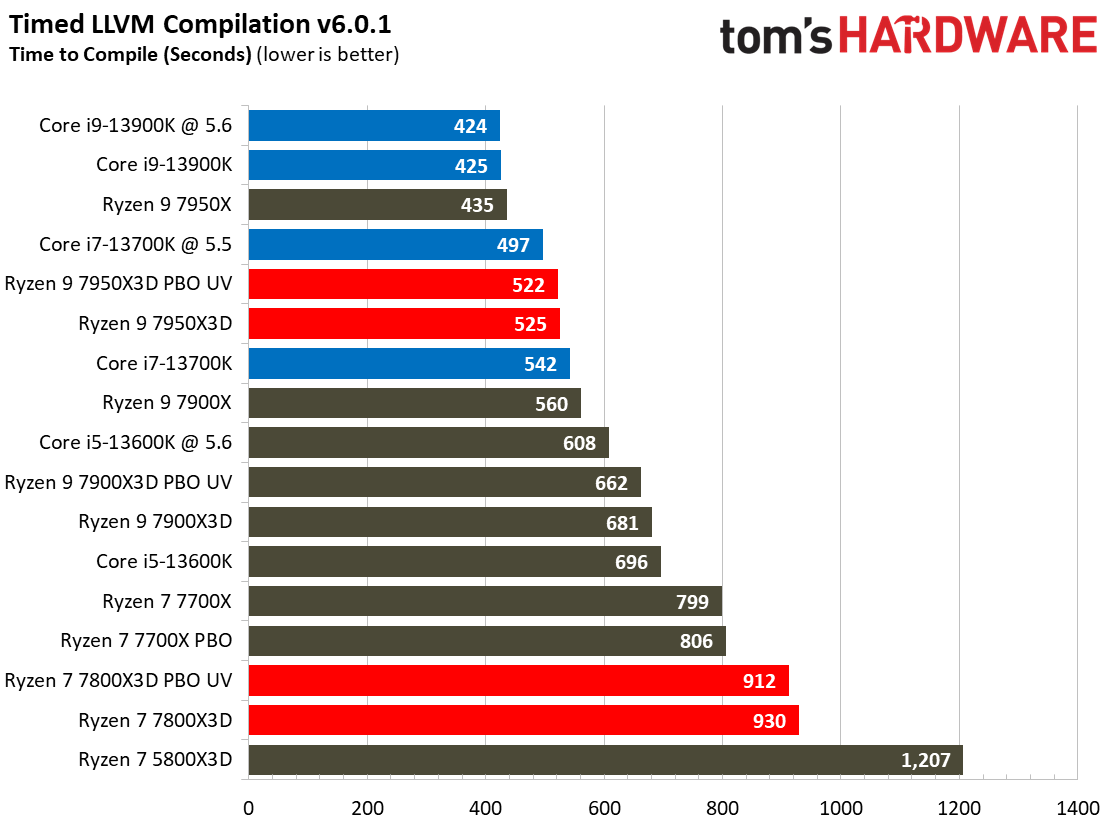
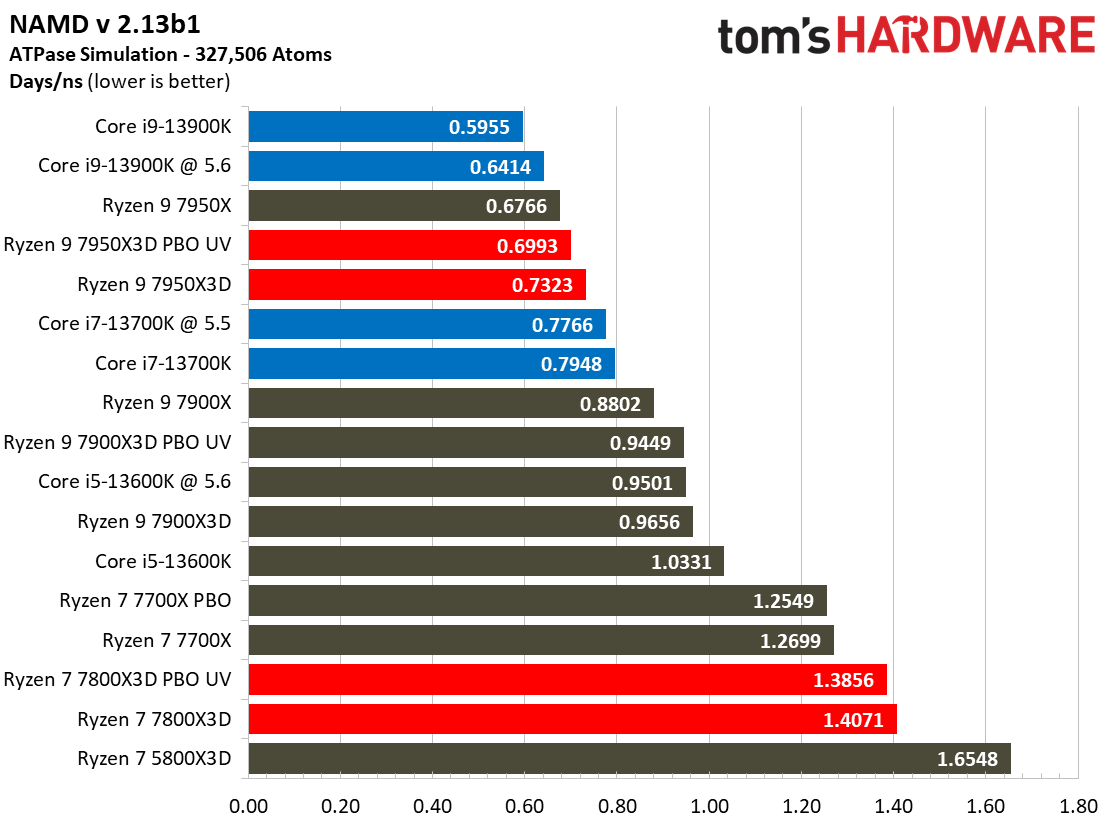
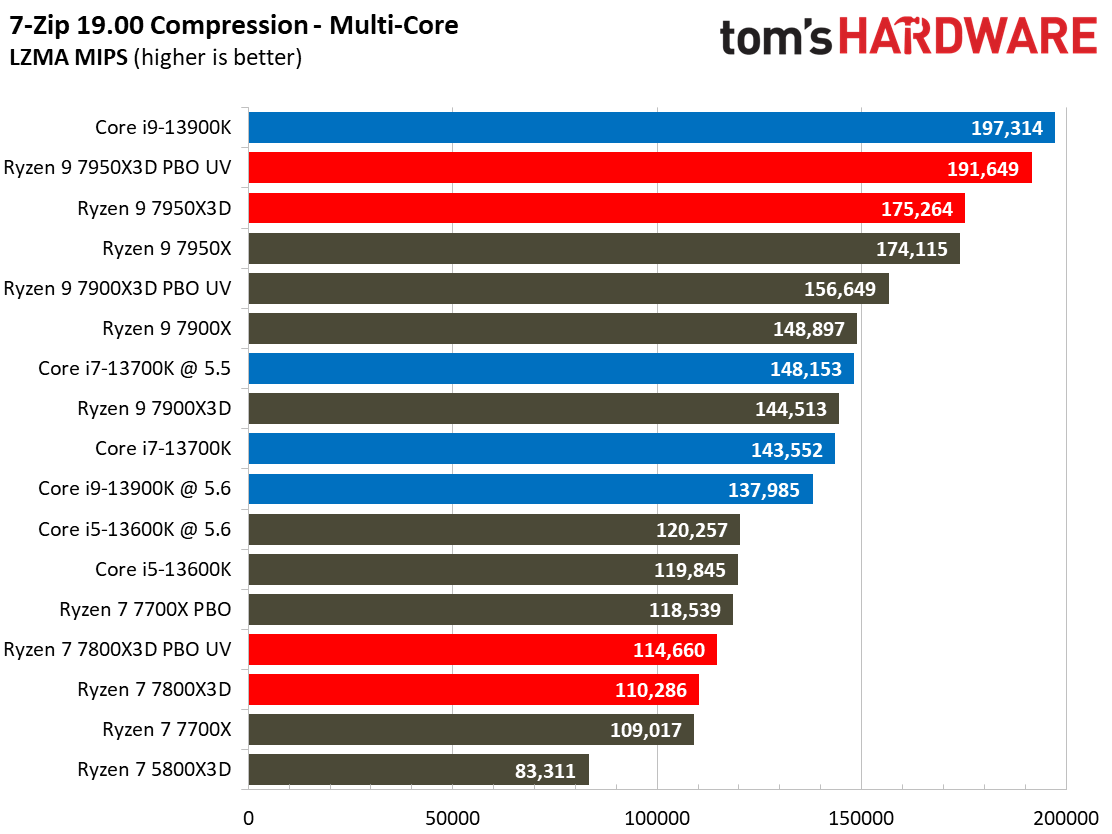
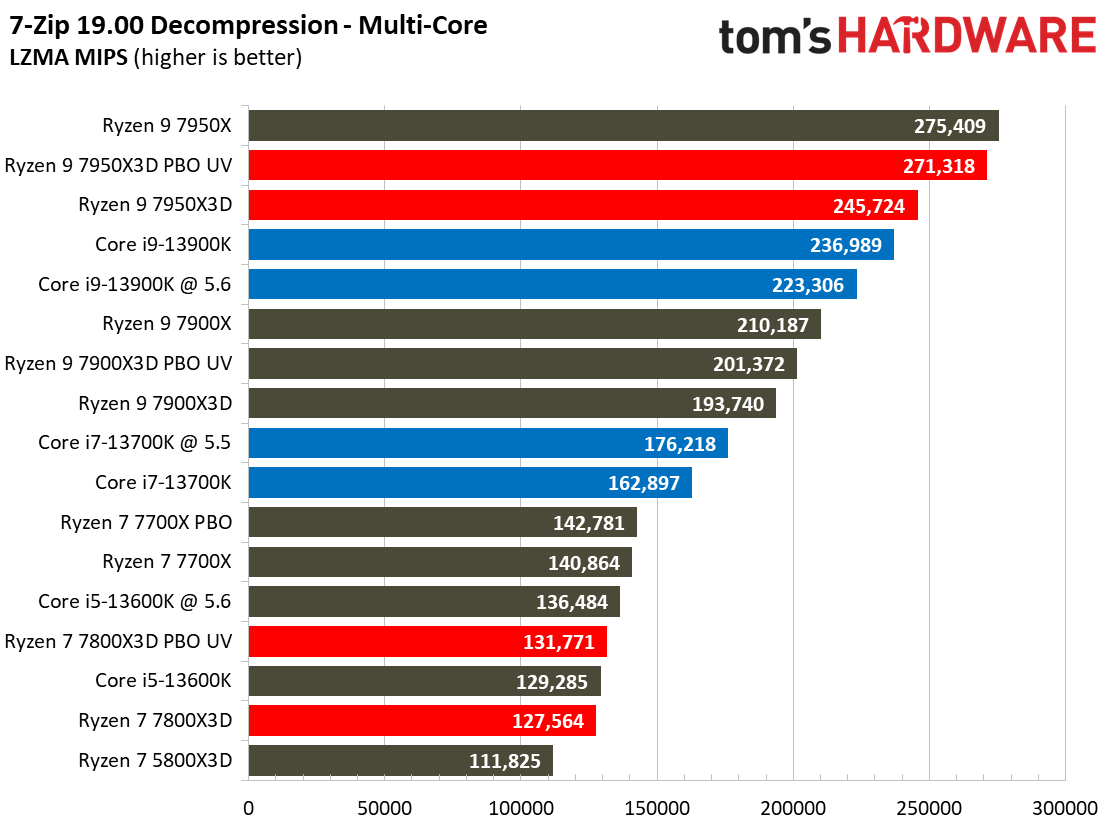
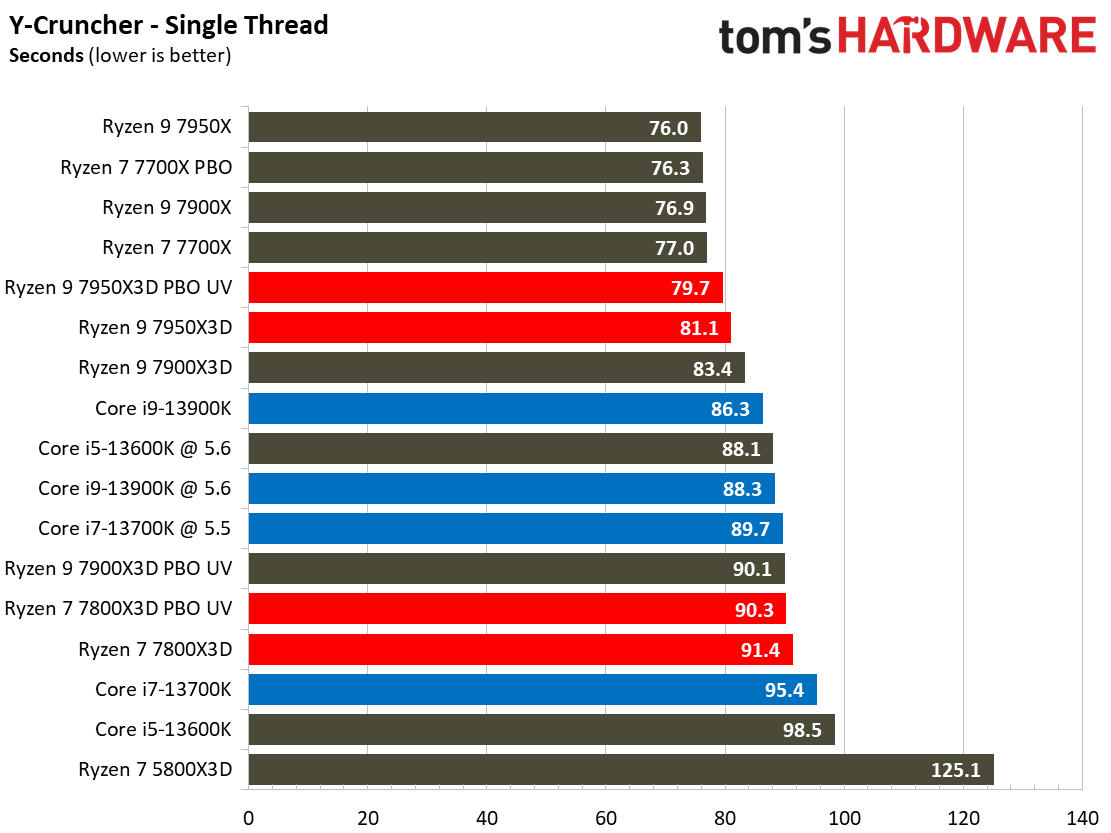
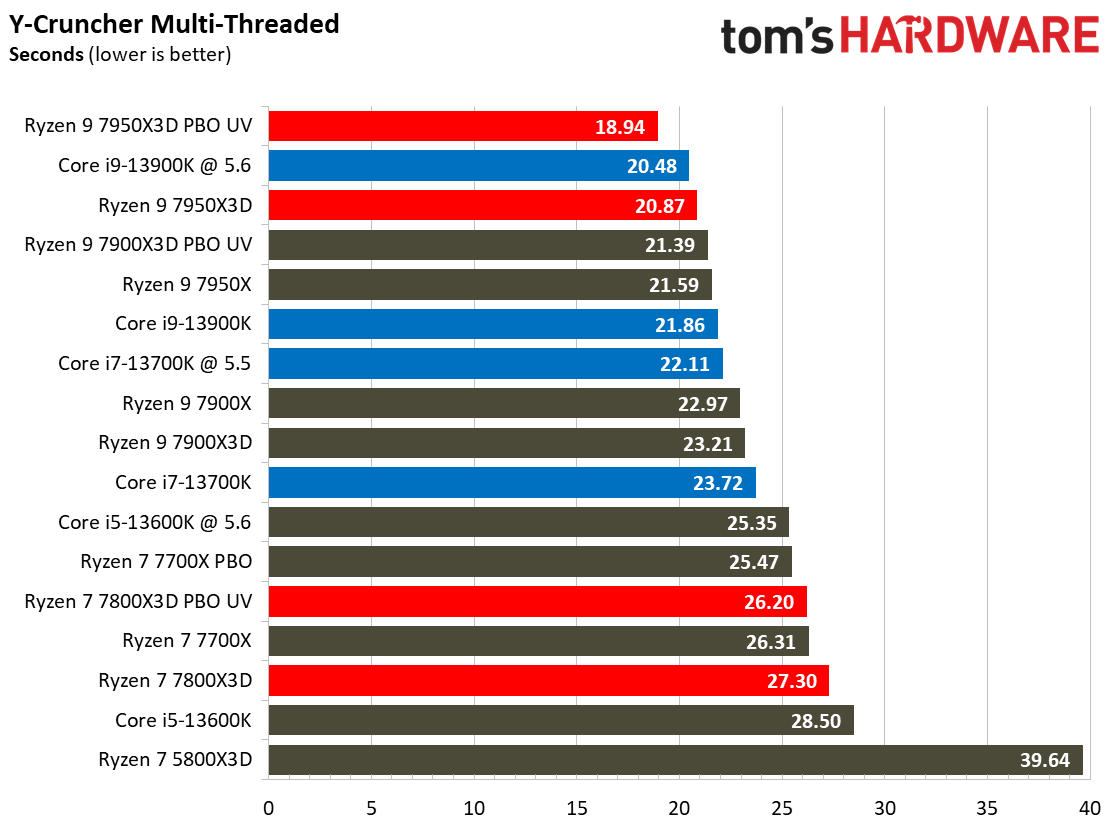
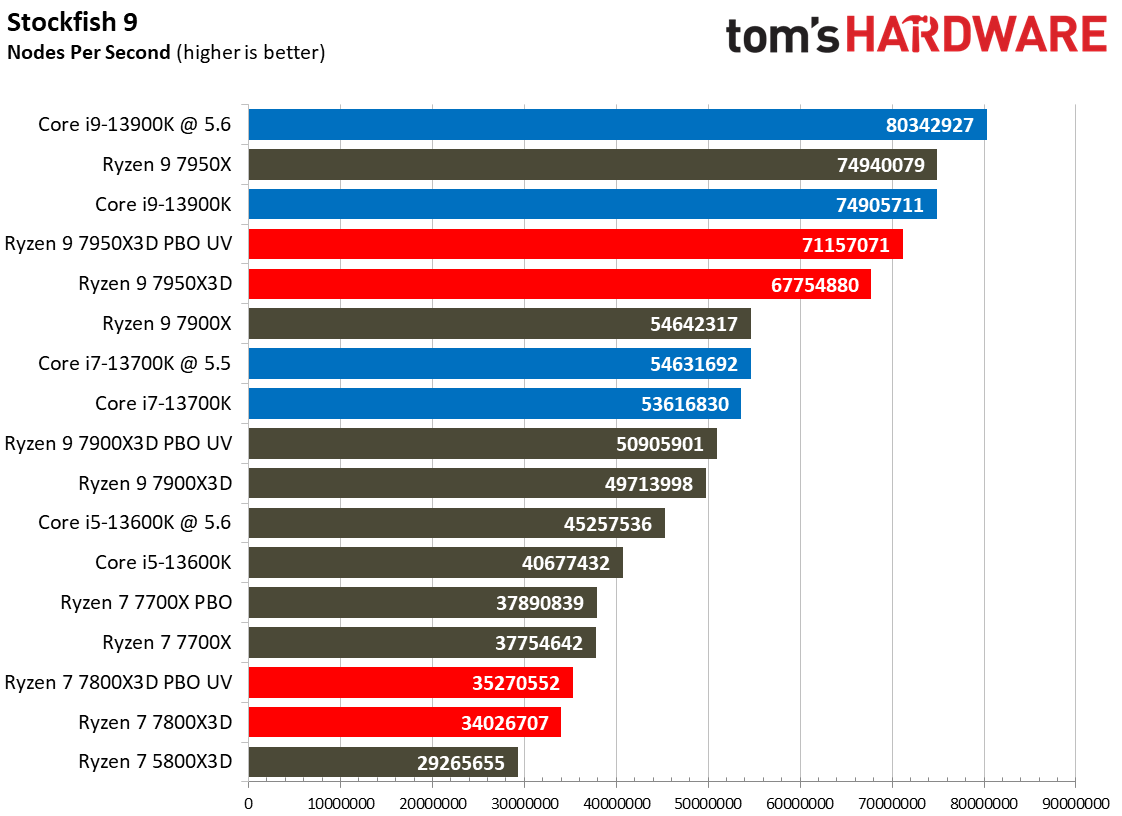
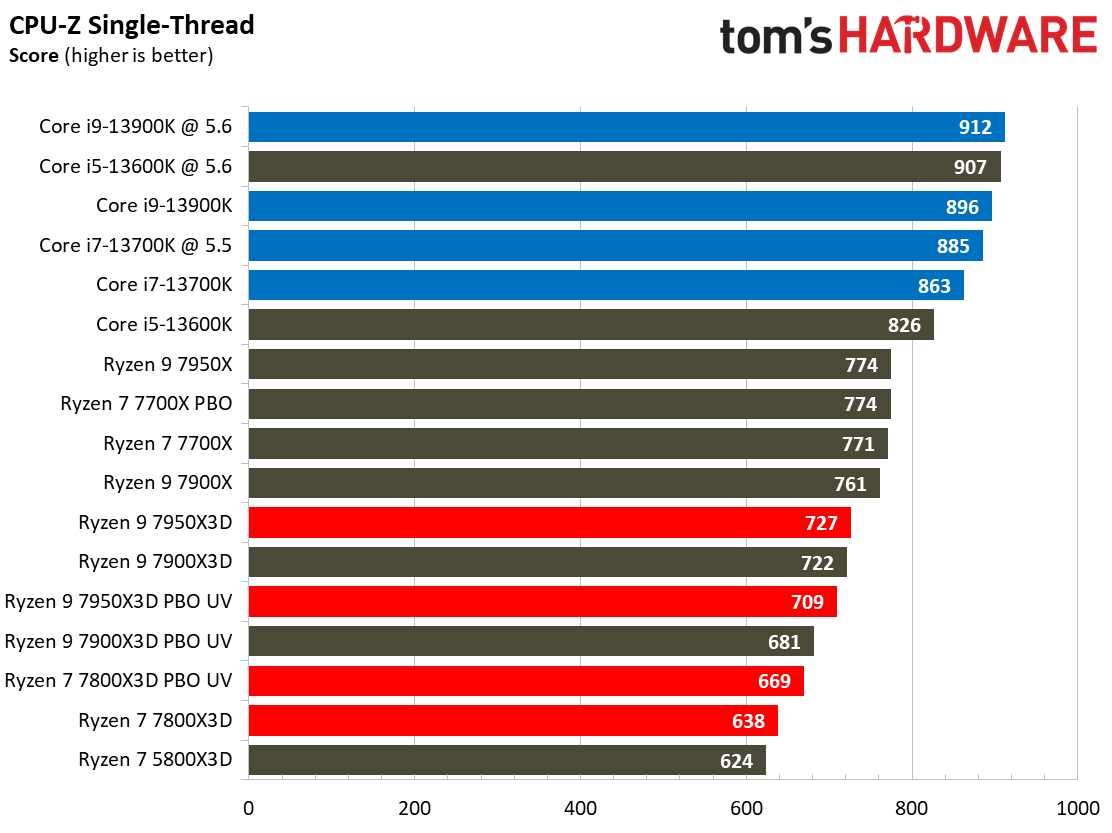
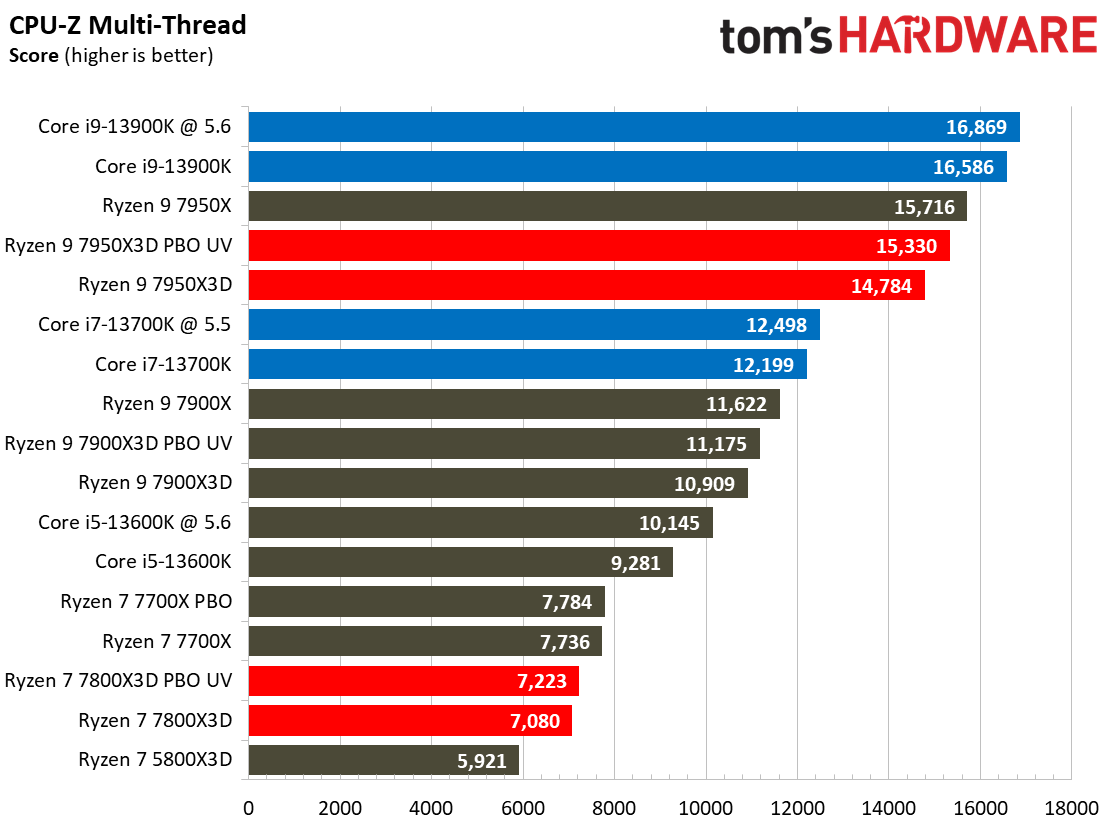
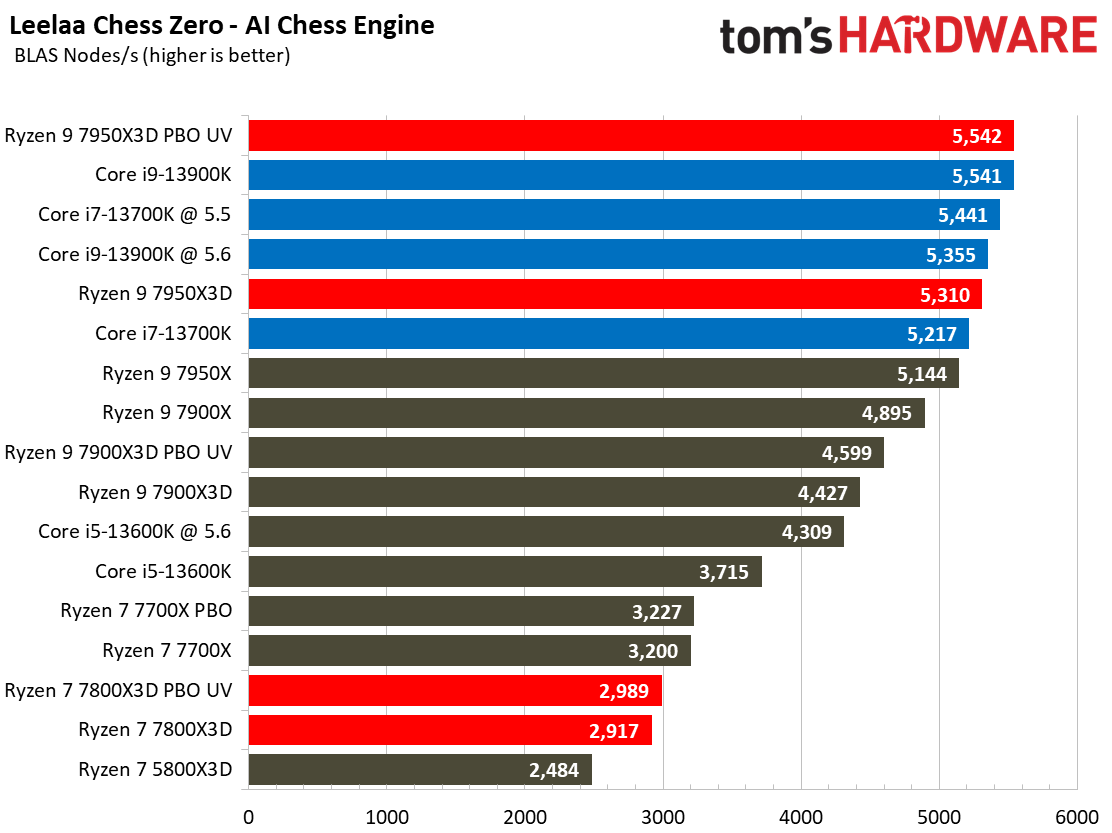
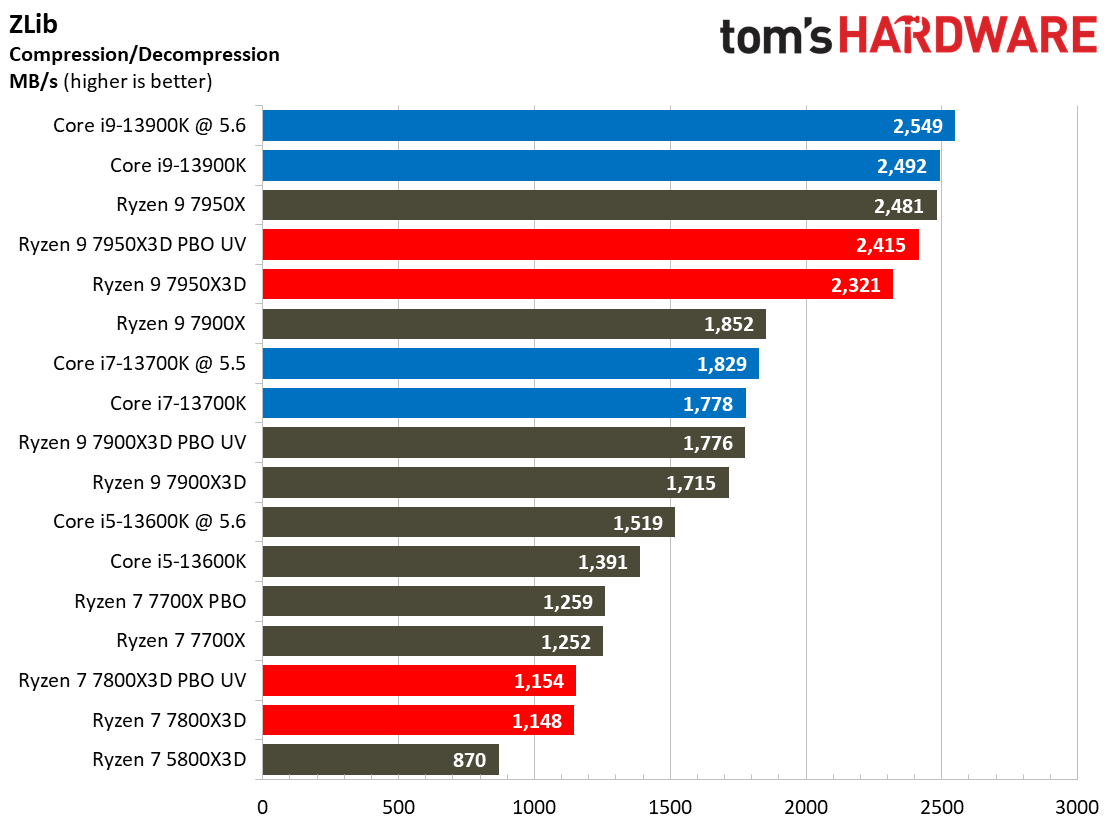
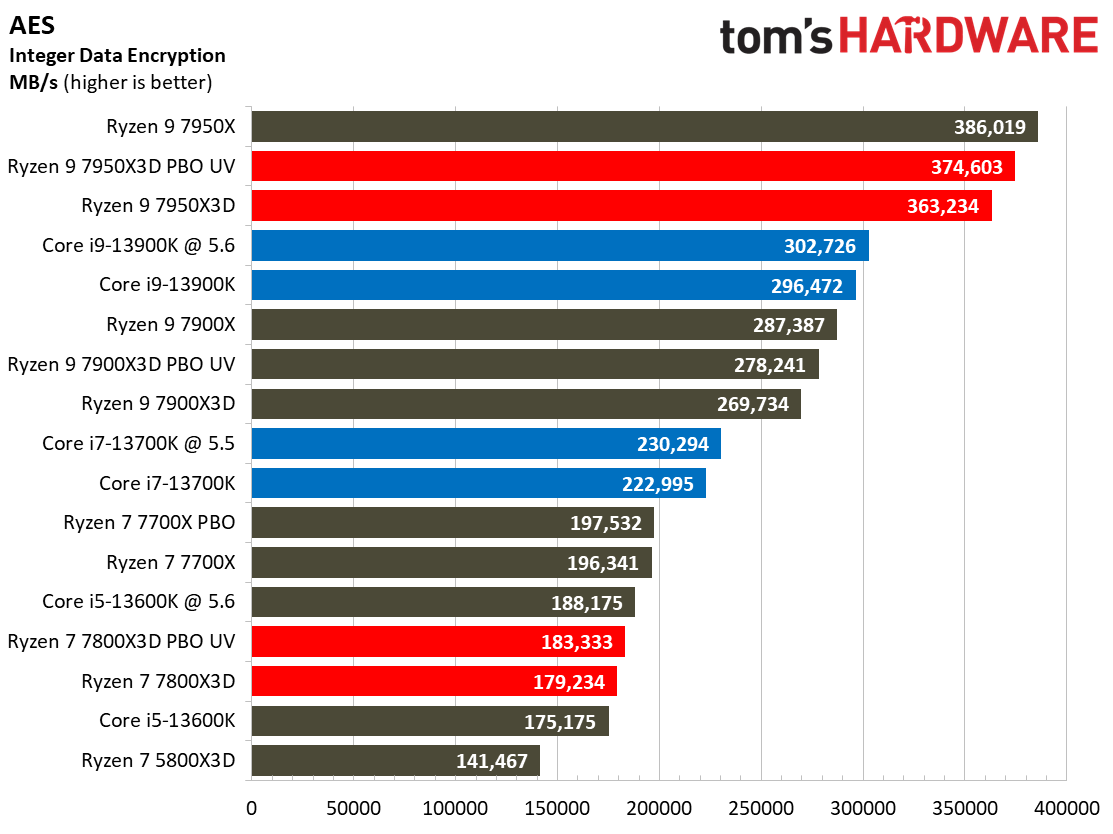
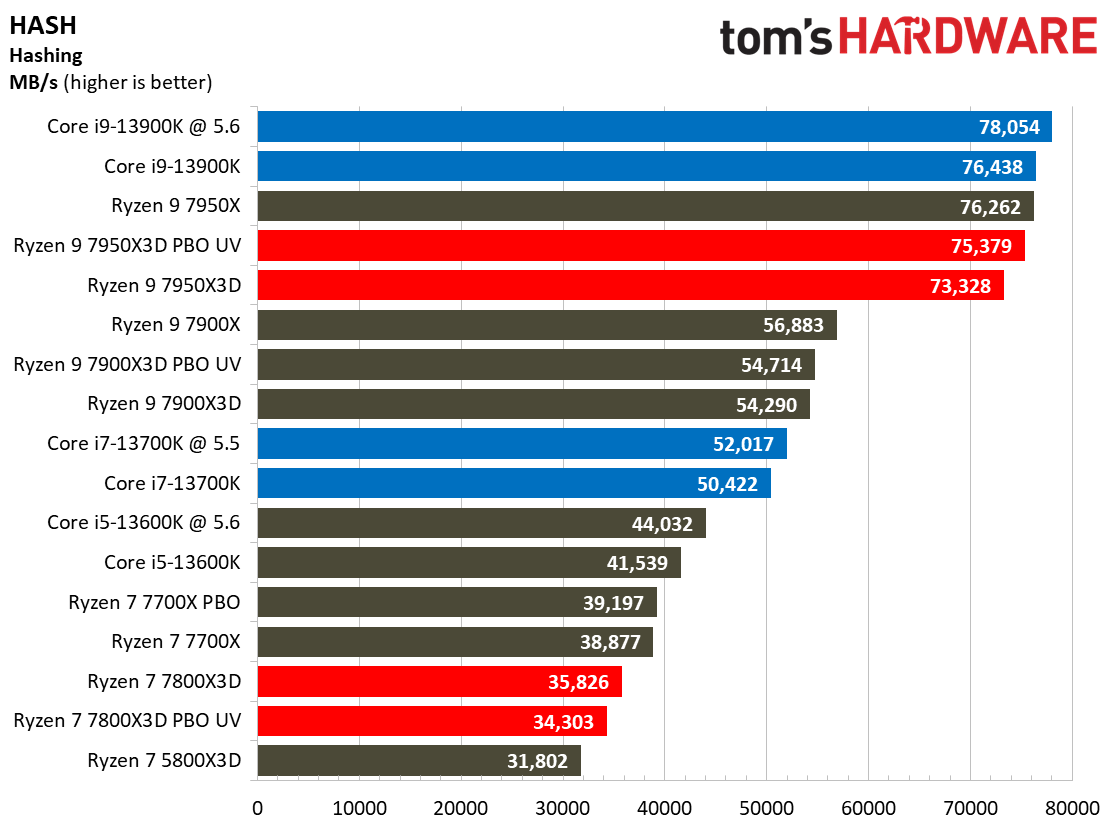
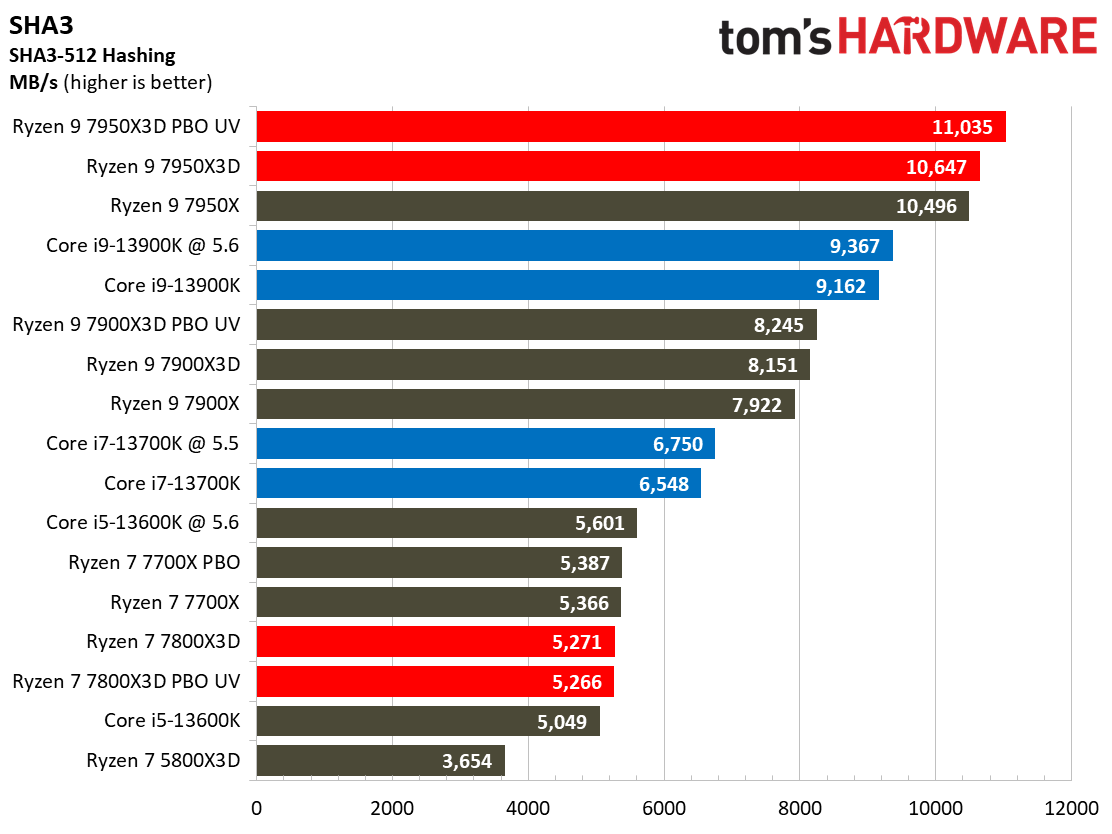
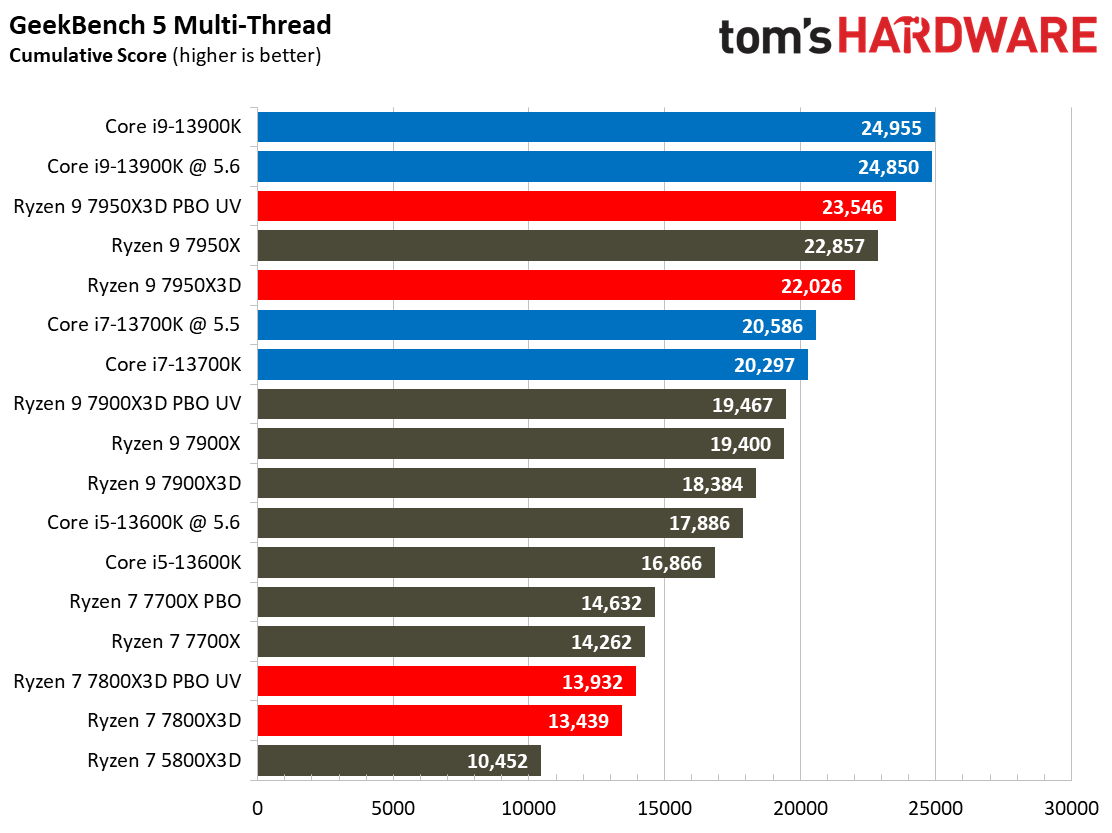
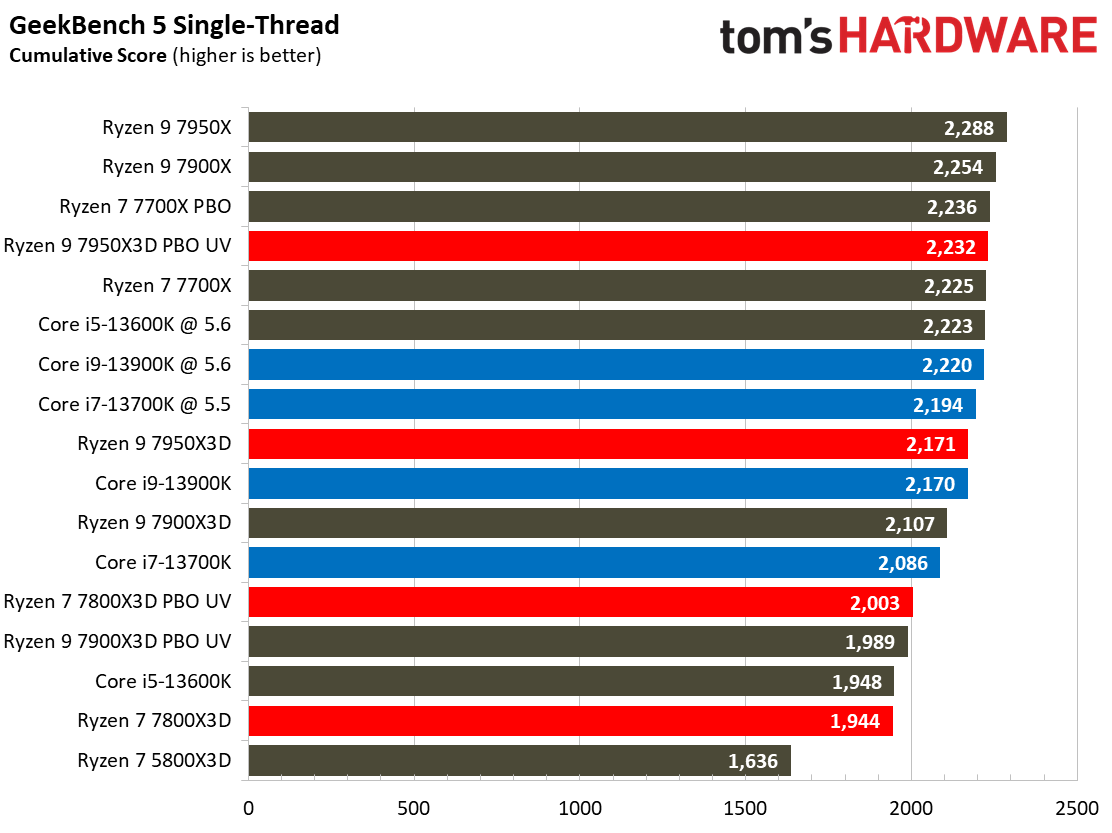
This selection of tests runs the gamut from the exceedingly branchy code in the LLVM compilation workload to the massively parallel molecular dynamics simulation code in NAMD to encryption and compression/decompression performance.
The demanding Y-cruncher benchmark computes Pi with the AVX instruction set and has optimizations for both Intel and AMD’s architectures. The Ryzen 7 7800X3D again fails to impress in any of these heavy workloads. If you're looking for solid performance in productivity applications, you'll have to look elsewhere.
- MORE: AMD Ryzen 7 7800X3D vs Intel Core i9-13900K vs Core i7-13700K
- MORE: Best CPU for gaming
- MORE: CPU Benchmark Hierarchy
- MORE: Intel vs AMD
- MORE: How to Overclock a CPU
Get Tom's Hardware's best news and in-depth reviews, straight to your inbox.
Current page: AMD Ryzen 7 7800X3D Productivity Benchmarks
Prev Page AMD Ryzen 7 7800X3D Gaming Benchmarks Next Page 3D V-Cache's Ultimate Form
Paul Alcorn is the Editor-in-Chief for Tom's Hardware US. He also writes news and reviews on CPUs, storage, and enterprise hardware.
-
colossusrage Nothing surprising here. Waiting for Black Friday to pick one up either cheaper or with some kind of bundle at Microcenter.Reply -
atomicWAR Staring at my 7950X3D chip and smiles...I need more cores personally and I have zero problem shutting down a CCD to get max FPS when the need arises which will beat the 7800X3D due to 250mhz higher clocks. Plus if I know a game hates/could care less about the extra cache I can switch CCDs to use the higher clocks. Regardless though this sounds like a great chip. I need to build a rig for my nephew who is graduating high school this year, he might benefit from a 7800X3D if I am nice...otherwise hell just get a 7700X lol.Reply -
JamesJones44 No real surprise here. For gaming only the 7800x3d is the best choice. That's why I was a little surprised the came out with a 7900 and 7950 variant.Reply
On a side note. When you compare the cost of the 7800x3d + AM5, it's actually only slightly more expensive than upgrading from a 12900k to a 13900ks (700 vs 890 with decent components and 32 GB of DDR 5). If your upgrading from something older than 12th gen Intel or 3000 series AMD it's hard to call the pricing a con in that scenario. Upgrading from either of those in a gaming only environment the prices are pretty close in a 13900k vs 7800x3d when you add all the component prices together. -
TerryLaze The reviewer forgot to mention one big con:Reply
Might get fried the second you boot it up the first time...
(if you upgrade from a different CPU and the bios settings are not extremely strickt set for the x3d chip)
https://www.tomshardware.com/news/overclocking-bug-5800x3d -
healthy Pro-teen Reply
It doesn't burn the chip itself, but the bug does allow you to mess with the voltages, so you can fry it but only if U manually (intentionally) push the voltage to insane levels like Igor did.TerryLaze said:The reviewer forgot to mention one big con:
Might get fried the second you boot it up the first time...
(if you upgrade from a different CPU and the bios settings are not extremely strickt set for the x3d chip)
https://www.tomshardware.com/news/overclocking-bug-5800x3d -
TerryLaze Reply
As I said, if you forget that you had higher Vcore for your previous CPU you can fry it on the spot.healthy Pro-teen said:It doesn't burn the chip itself, but the bug does allow you to mess with the voltages, so you can fry it but only if U manually (intentionally) push the voltage to insane levels like Igor did. -
healthy Pro-teen I watched the hardware unboxed review where a currently $140 motherboard ($125 MSRP) was able to keep up with a 7950X. there are many options for motherboards under $200 to run this chip without any issues, platform pricing is much better than it was at launch.Reply -
King_V Reply
So, if someone who already bought an AM5 CPU, which could have been purchased, AT MOST, 6 months ago, and has over-volted it, and has decided to swap in a 7800X3D....TerryLaze said:As I said, if you forget that you had higher Vcore for your previous CPU you can fry it on the spot.
That seems like an absurdly niche case. And, for the tiny number of people who are swapping from one AM5 chip to this one, and over-volted, one would think they'd be knowledgeable enough not to be that careless.
This seems like you're really grasping at straws to find a "flaw"/complain about AMD. -
jeremyj_83 Reply
I can see those other variants as people who game when they aren't working but still need a boat load of cores for their work.JamesJones44 said:For gaming only the 7800x3d is the best choice. That's why I was a little surprised the came out with a 7900 and 7950 variant. -
jeremyj_83 I am actually quite surprised by how closely the AMD supplied benchmark results were to the results for the same games in the review.Reply
